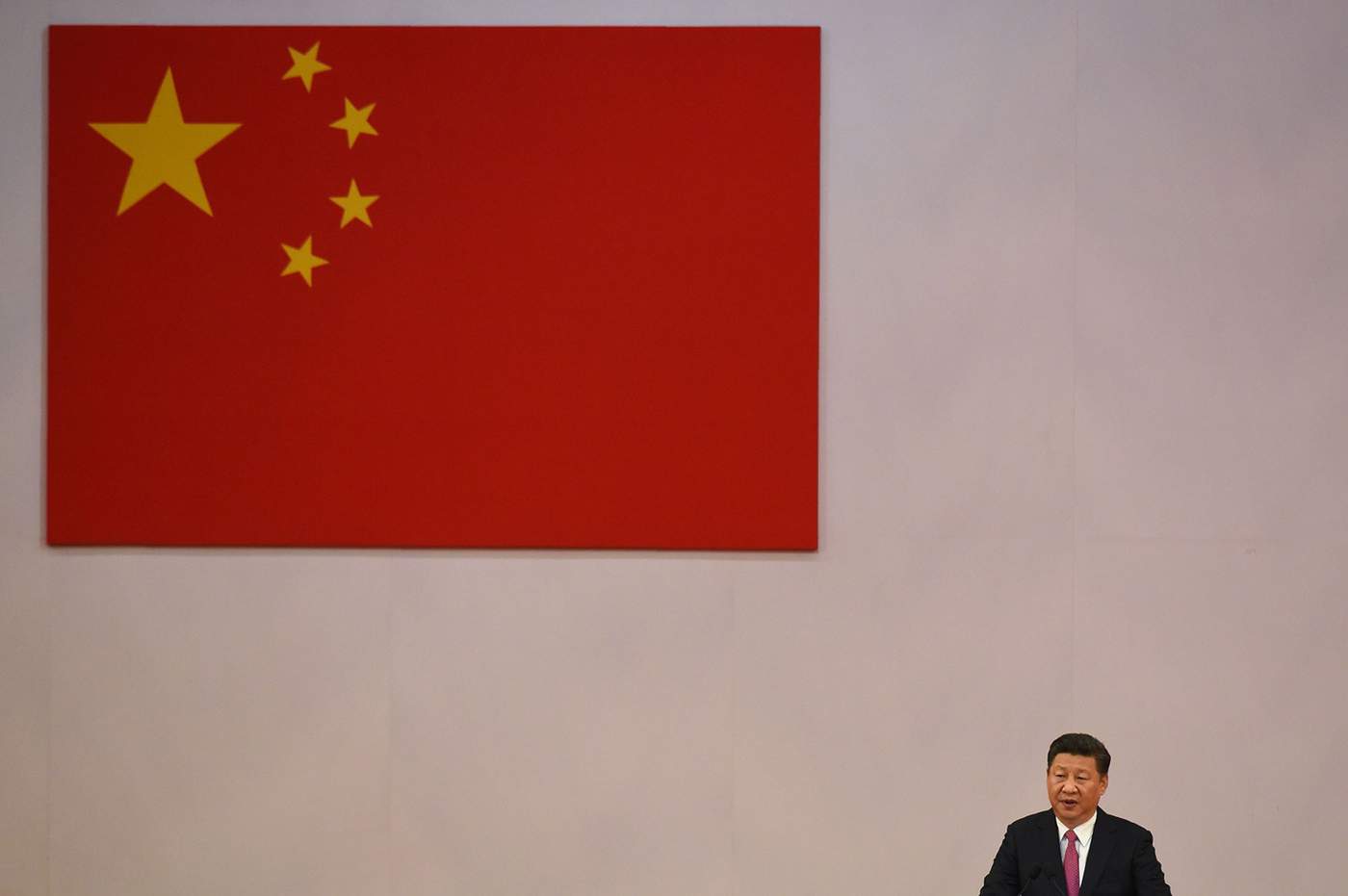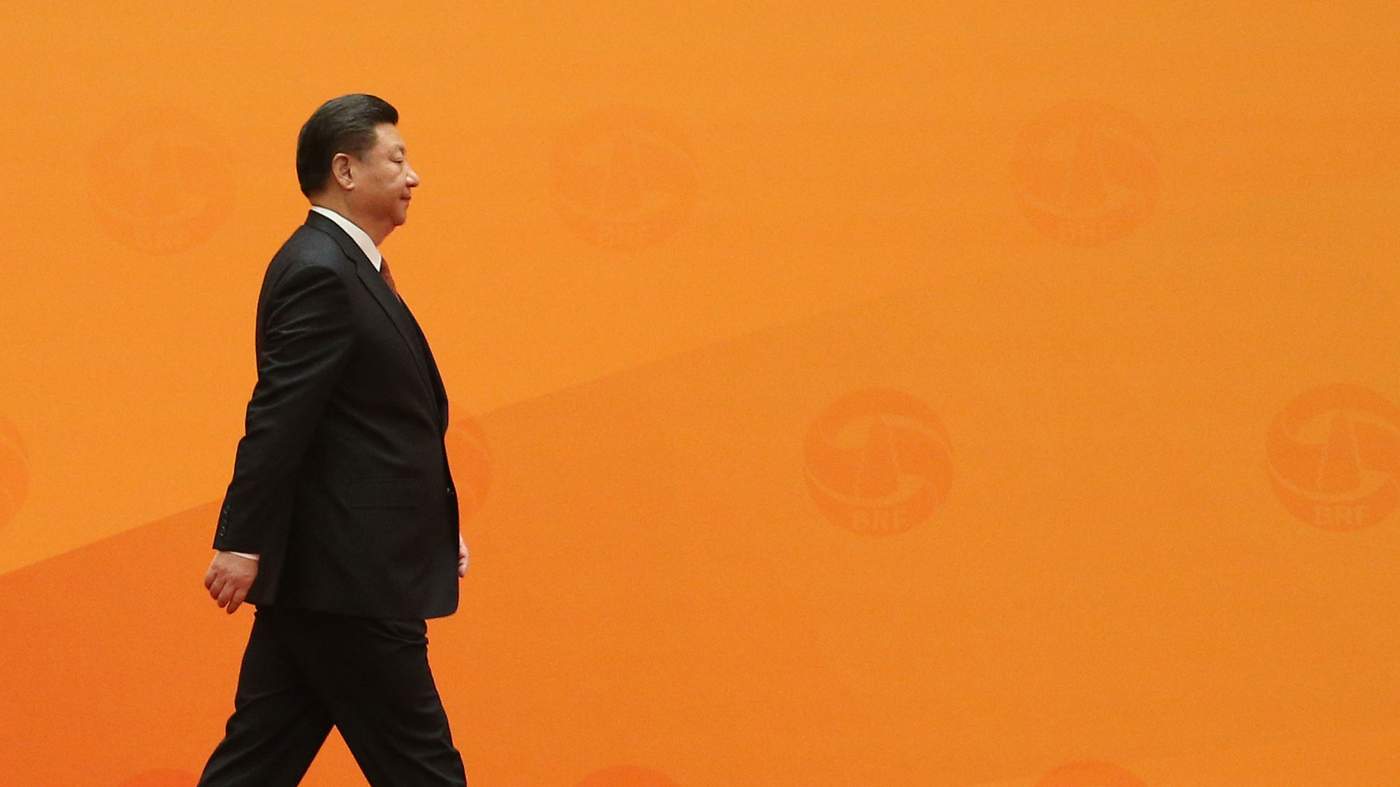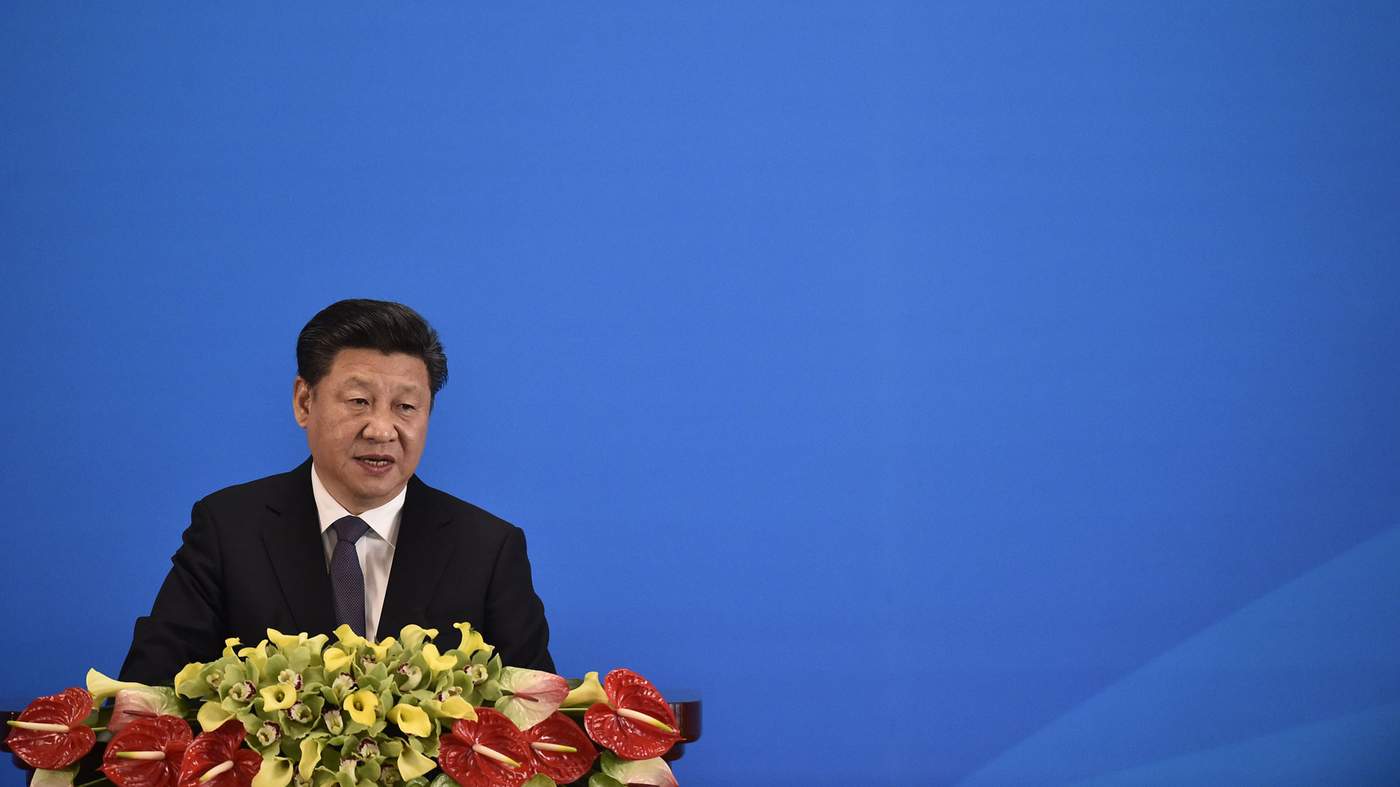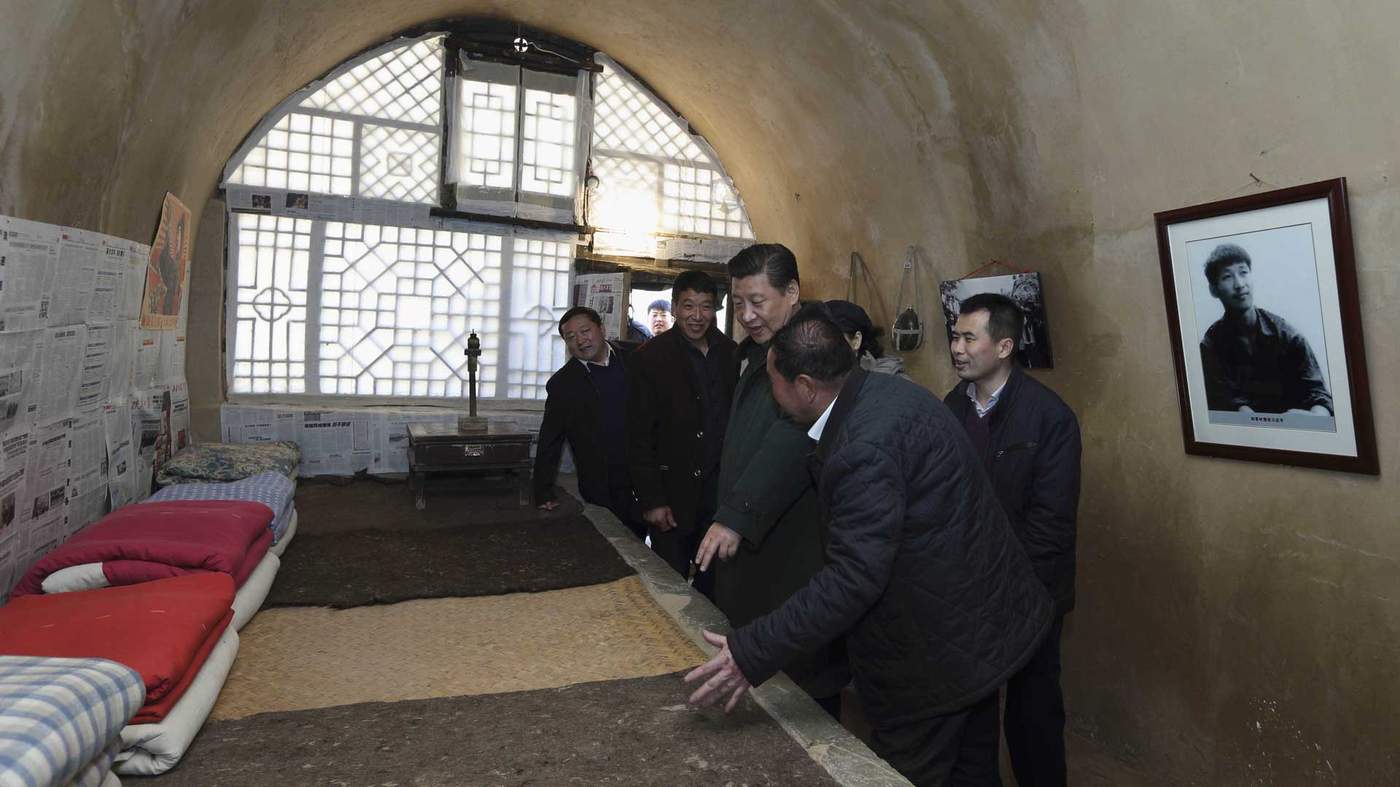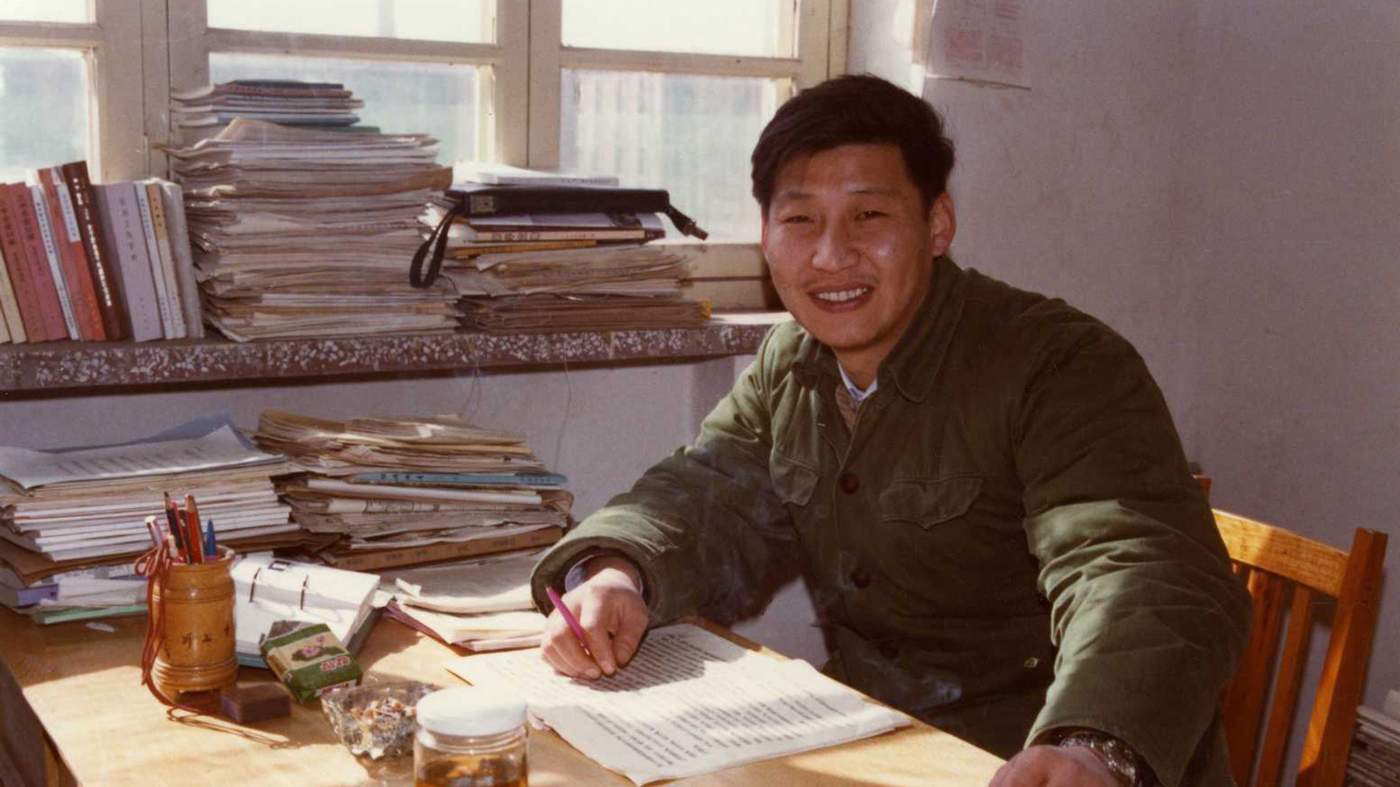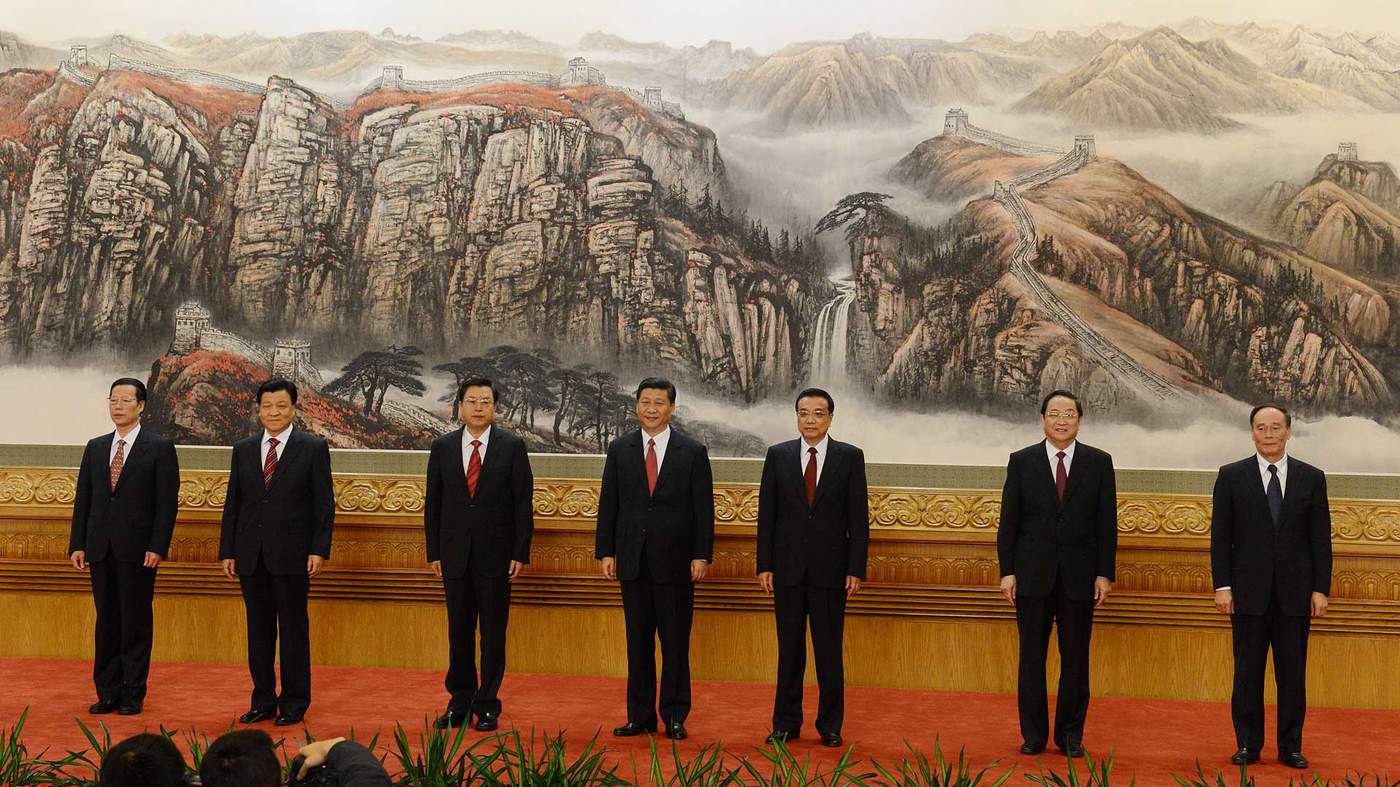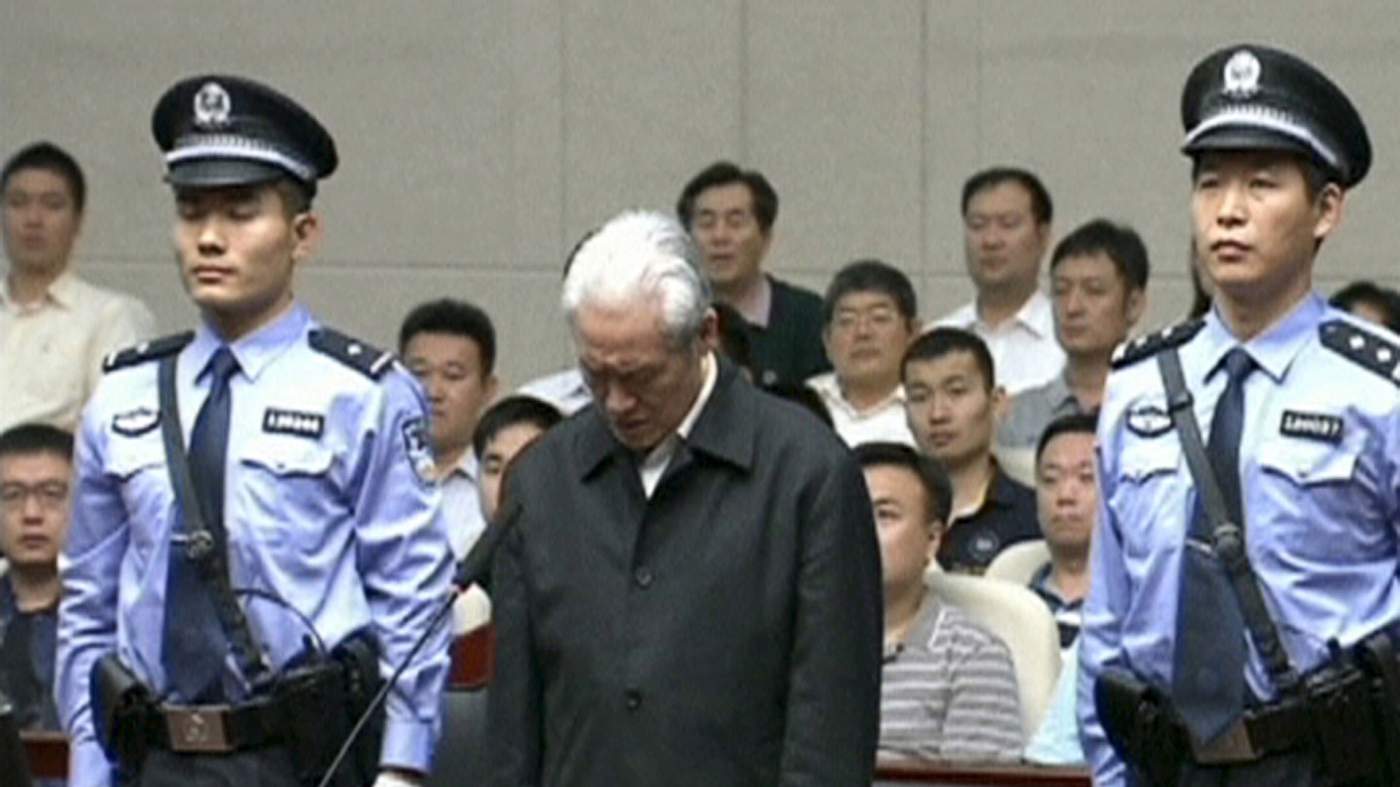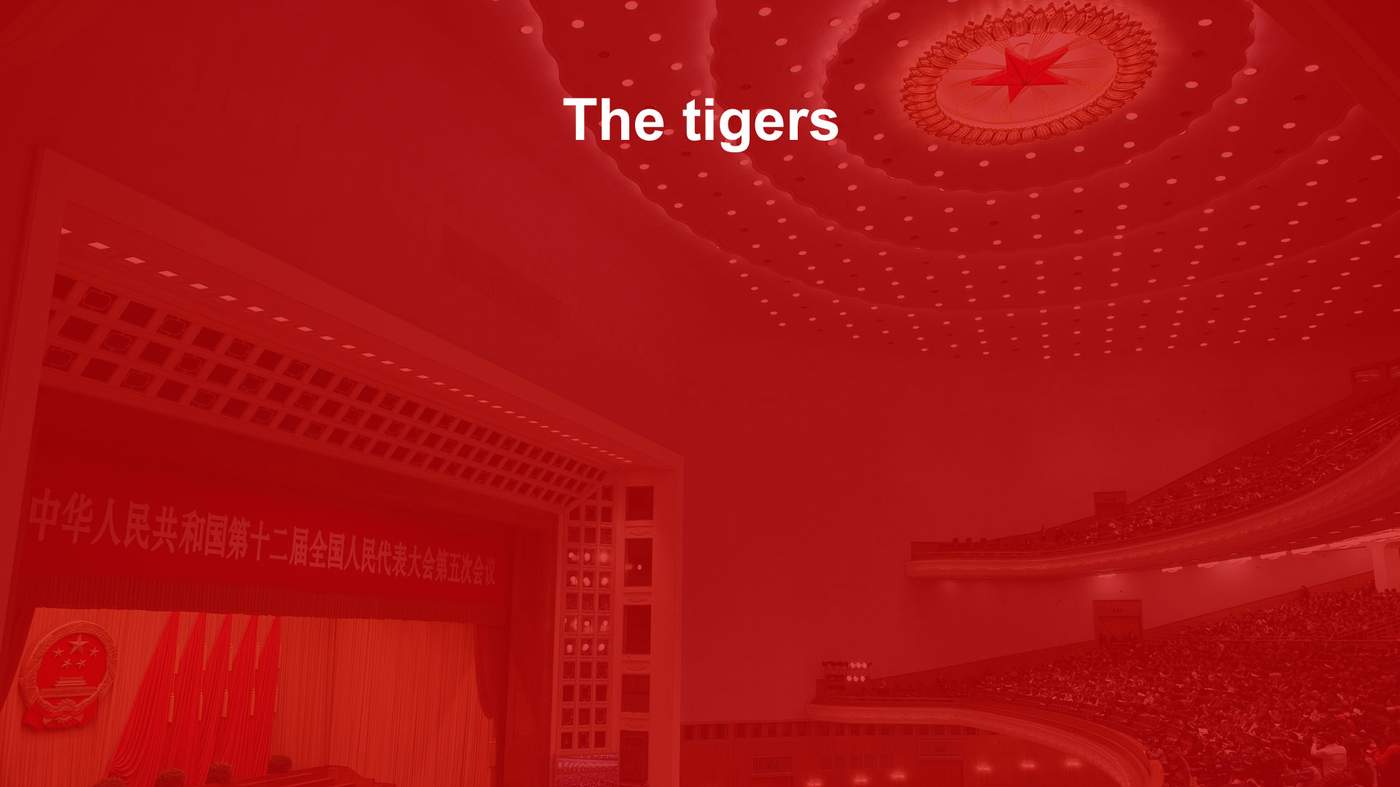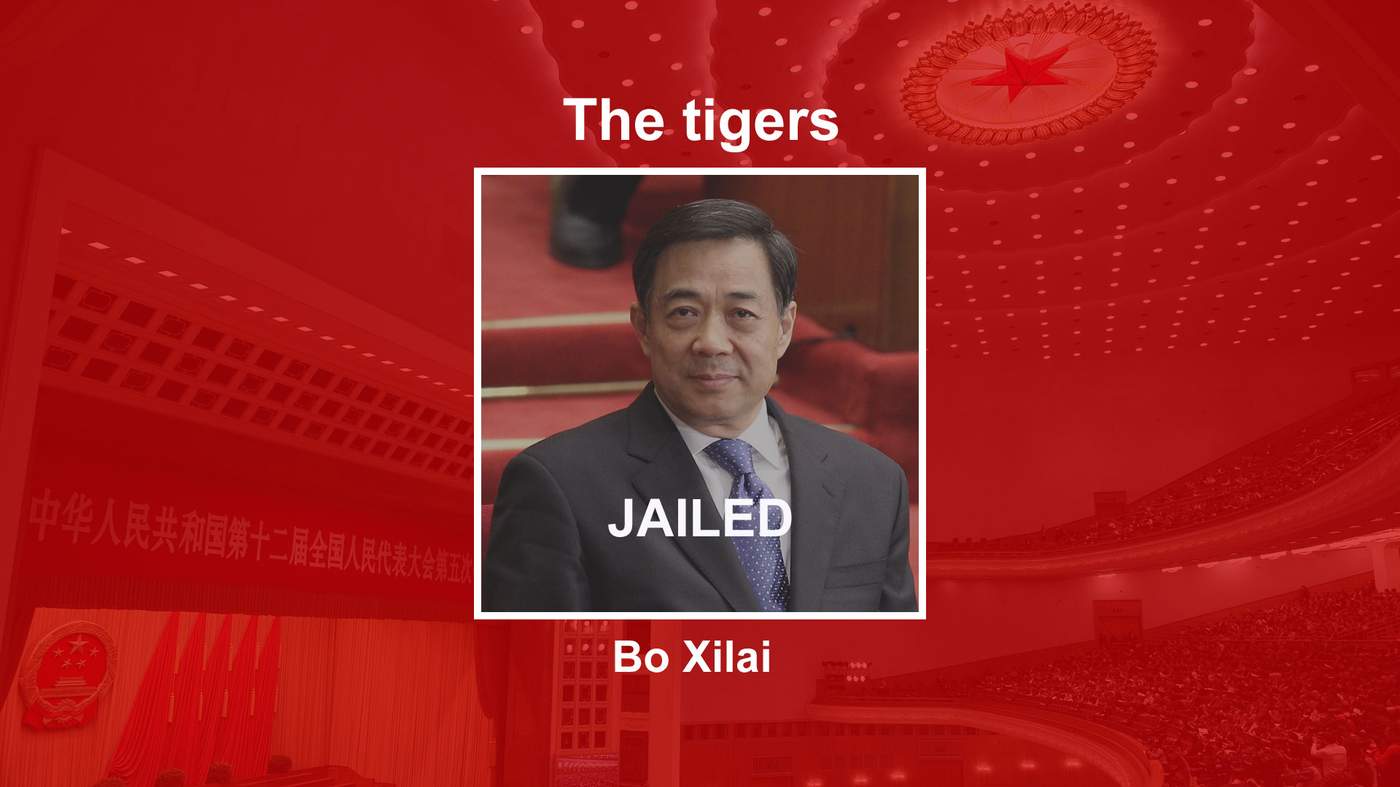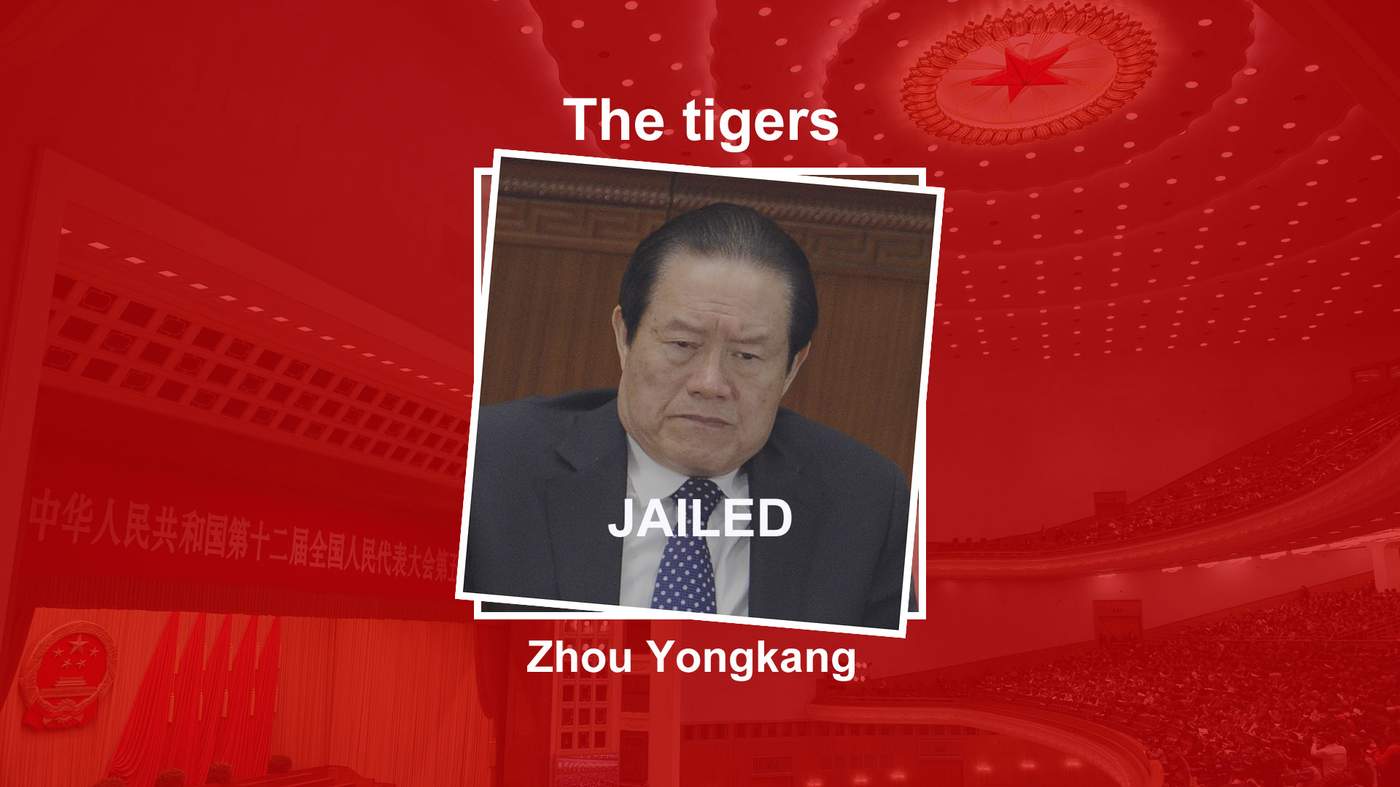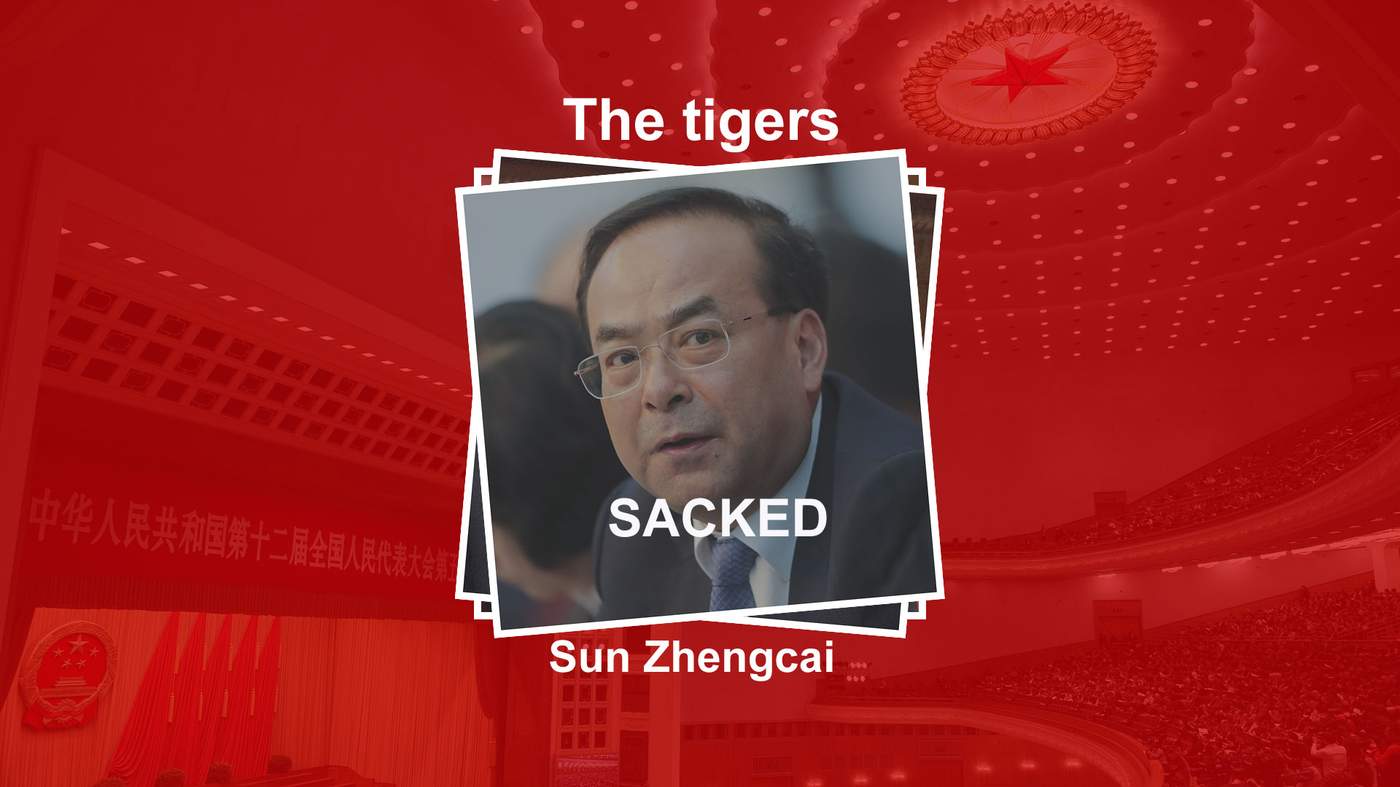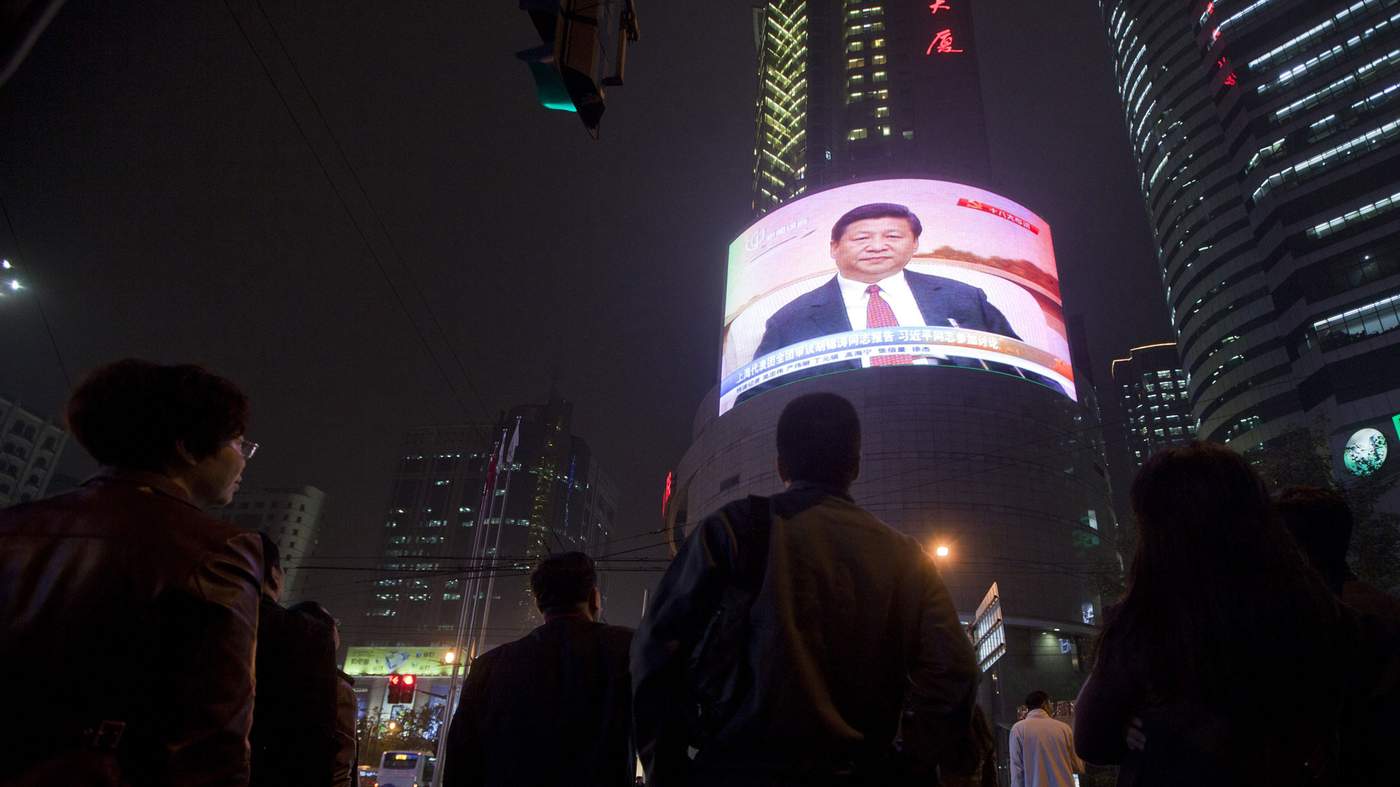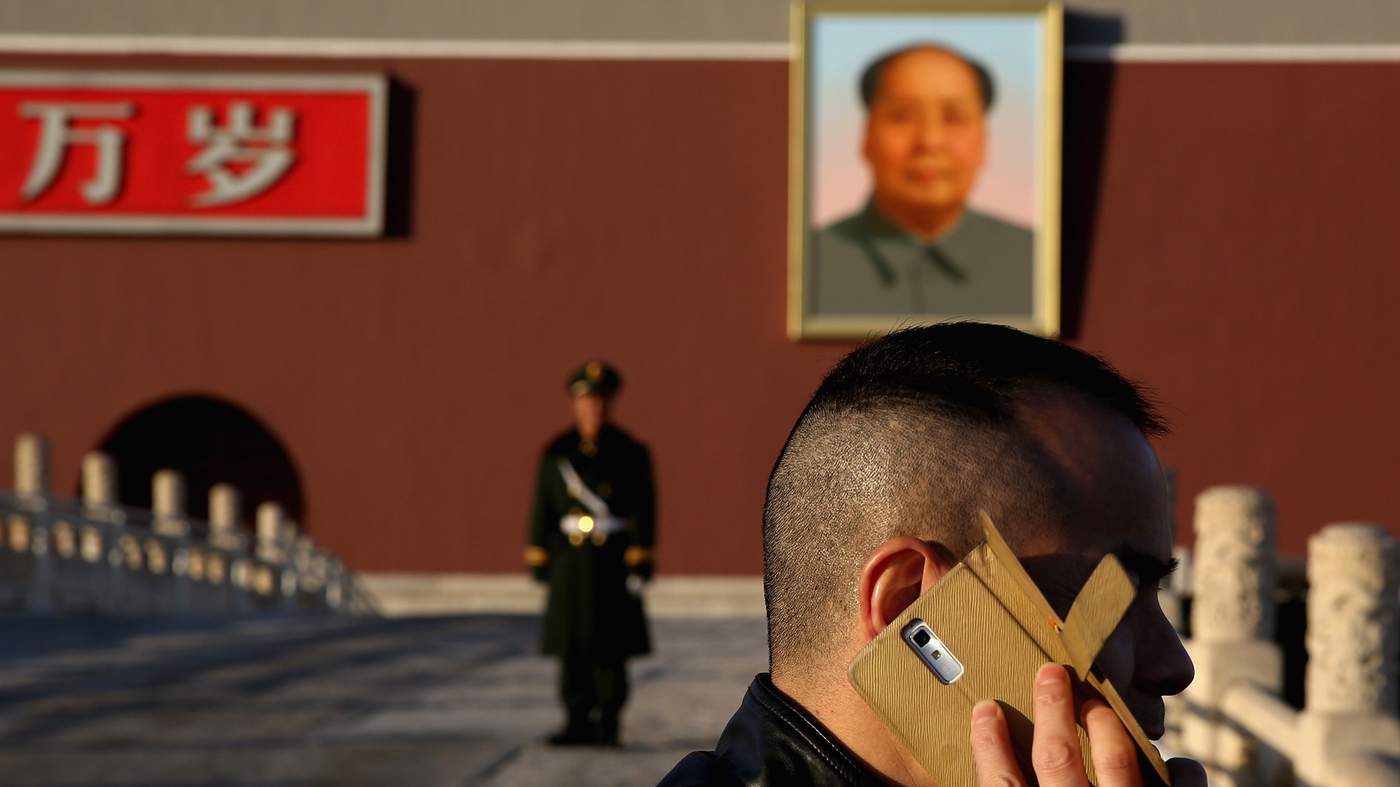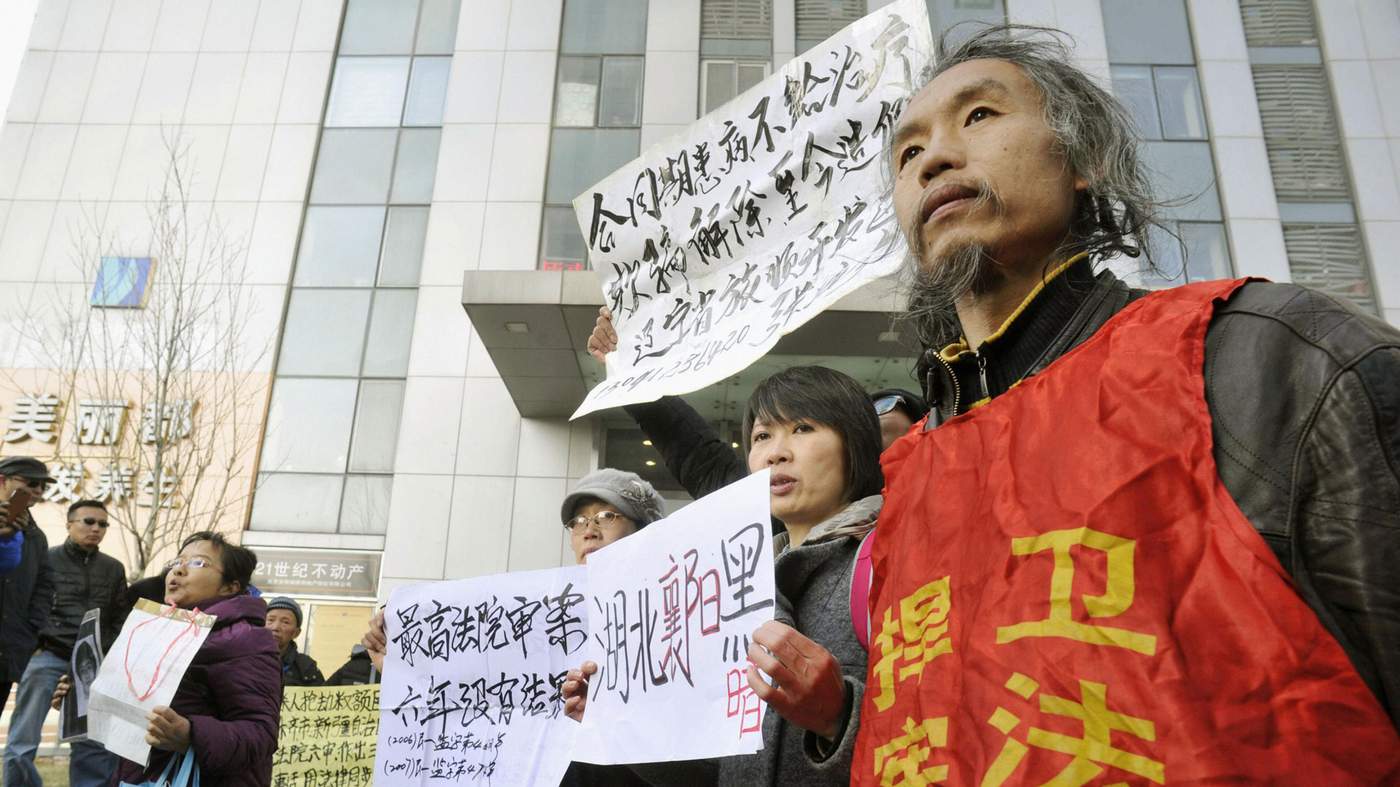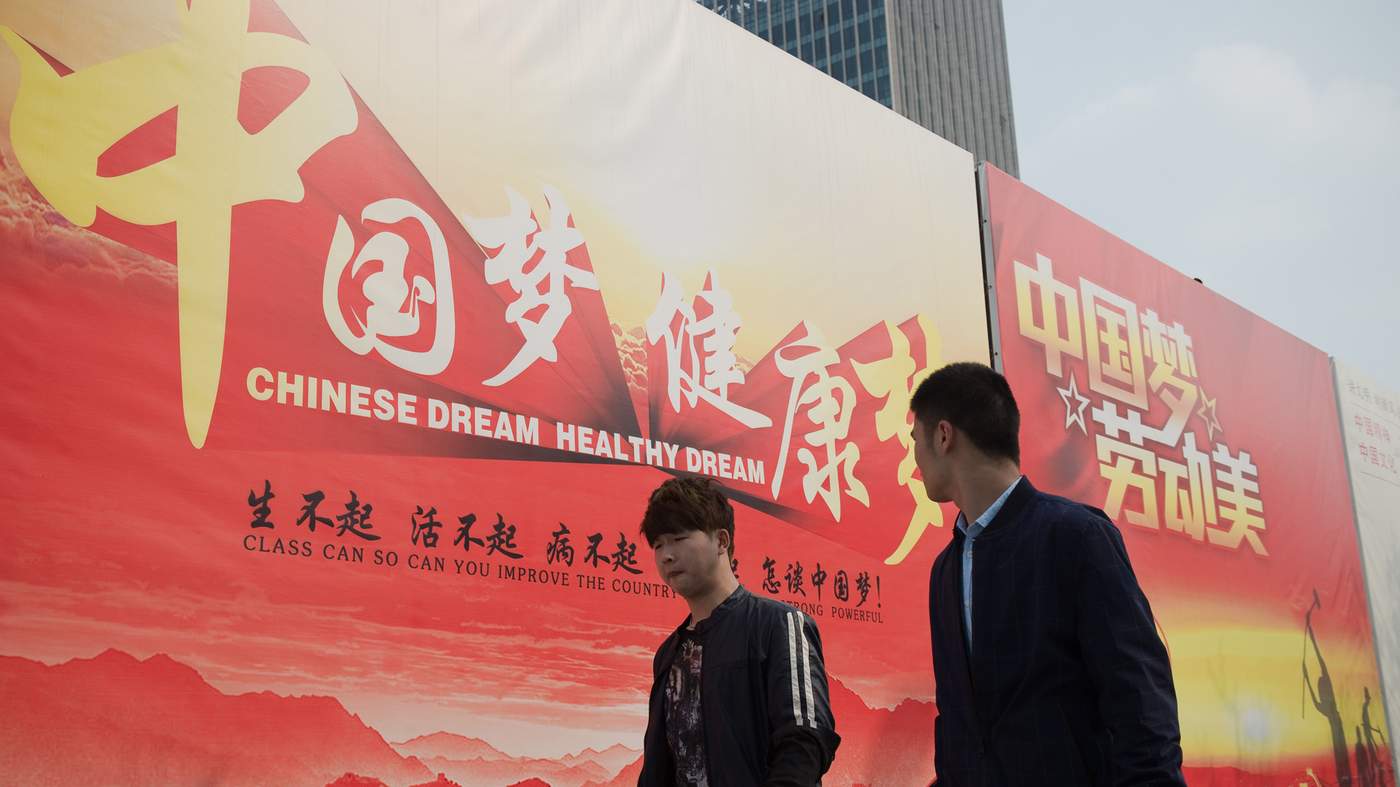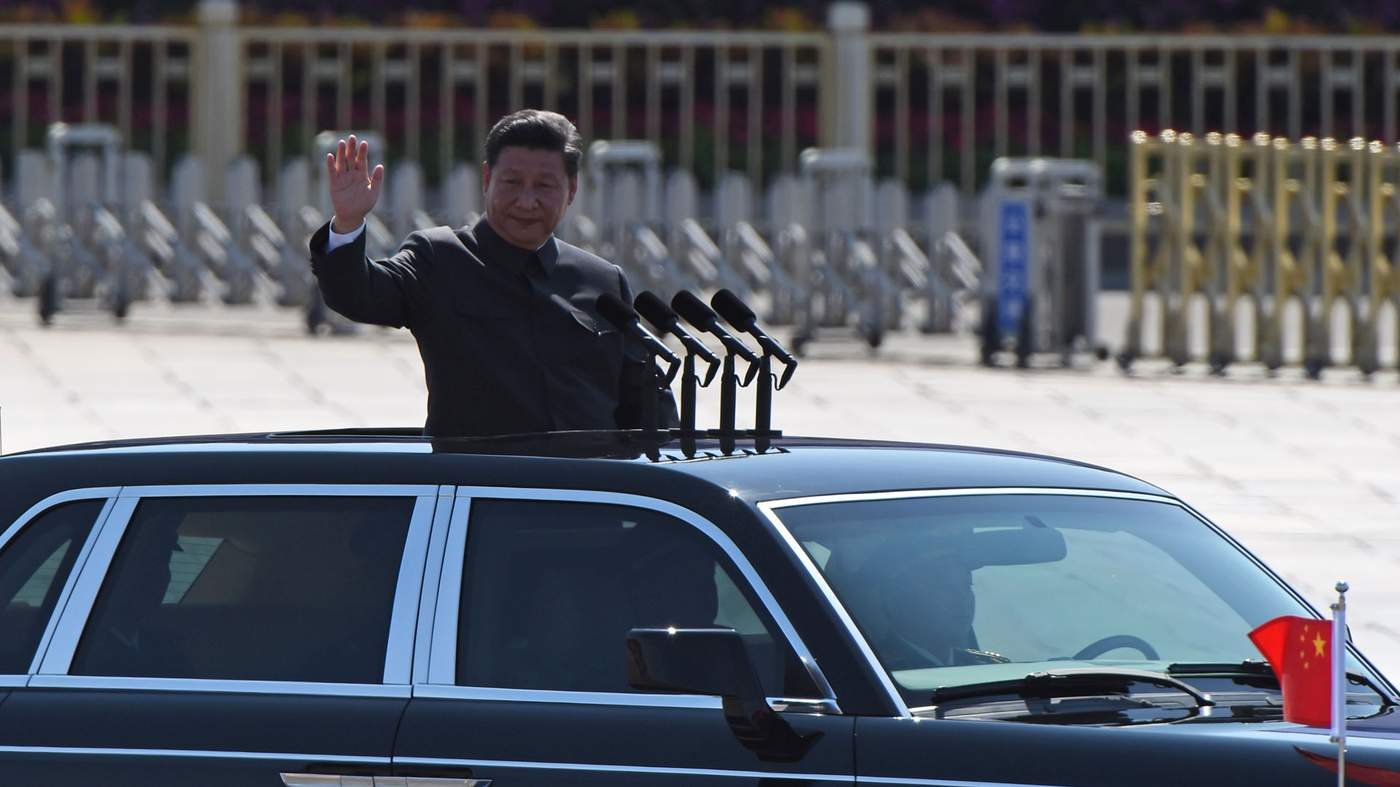There aren’t many 21st Century leaders who lived in a cave and laboured as a farmer before clawing their way to power.
Five decades ago, as the chaos of the Cultural Revolution engulfed Beijing, the 15-year-old Xi Jinping embarked on a harsh rural life amid the yellow canyons and mountains of inland China.
The region where Xi farmed was a bastion of the Communists during the civil war. Yan’an came to call itself “the holy land of the Chinese revolution”.
Now President Xi Jinping’s second five-year term as leader will be confirmed at the Chinese Communist Party Congress. He leads a confident, rising superpower, but one which jealously polices what is said about its leaders.
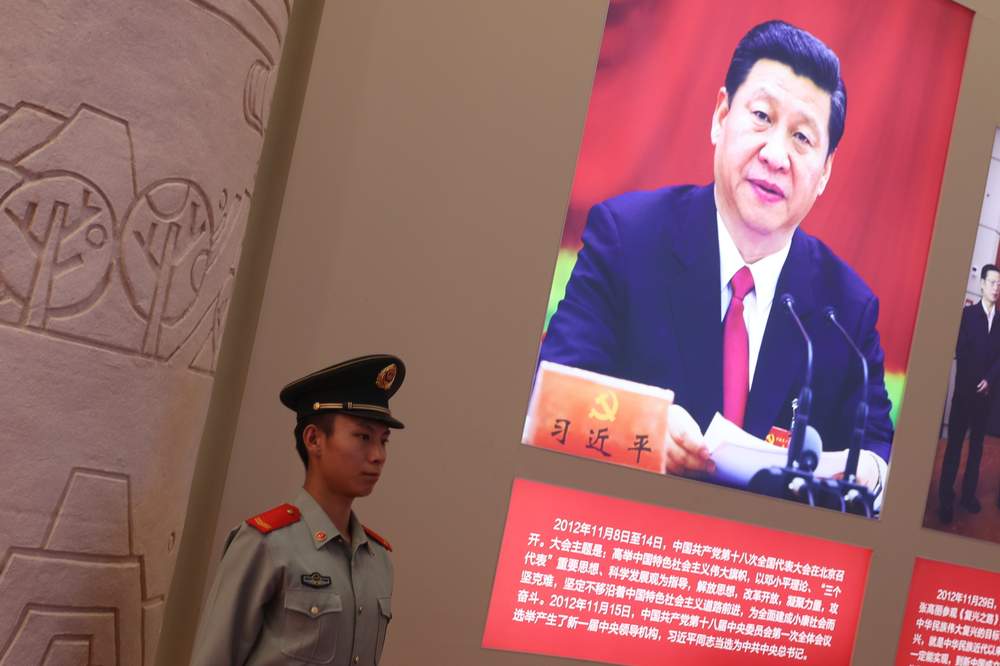
Xi’s own story has been sanitised and while much of rural China has seen , the village where he grew up is now a pilgrimage destination for the Communist Party faithful.
In 1968 Mao had decreed that millions of young people should move from the cities to the countryside to learn from the hard life of the peasants.
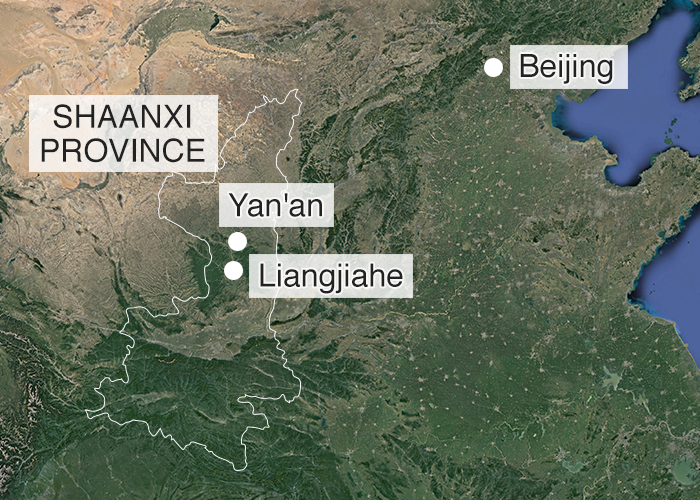
Xi says he did learn, and that the ideas and qualities which define him today were formed in his early cave life. “I’m forever a son of the yellow earth,” he likes to say. “I left my heart in Liangjiahe. Liangjiahe made me.
“When I arrived at 15, I was anxious and confused. When I left at 22, my life goals were firm and I was filled with confidence.”
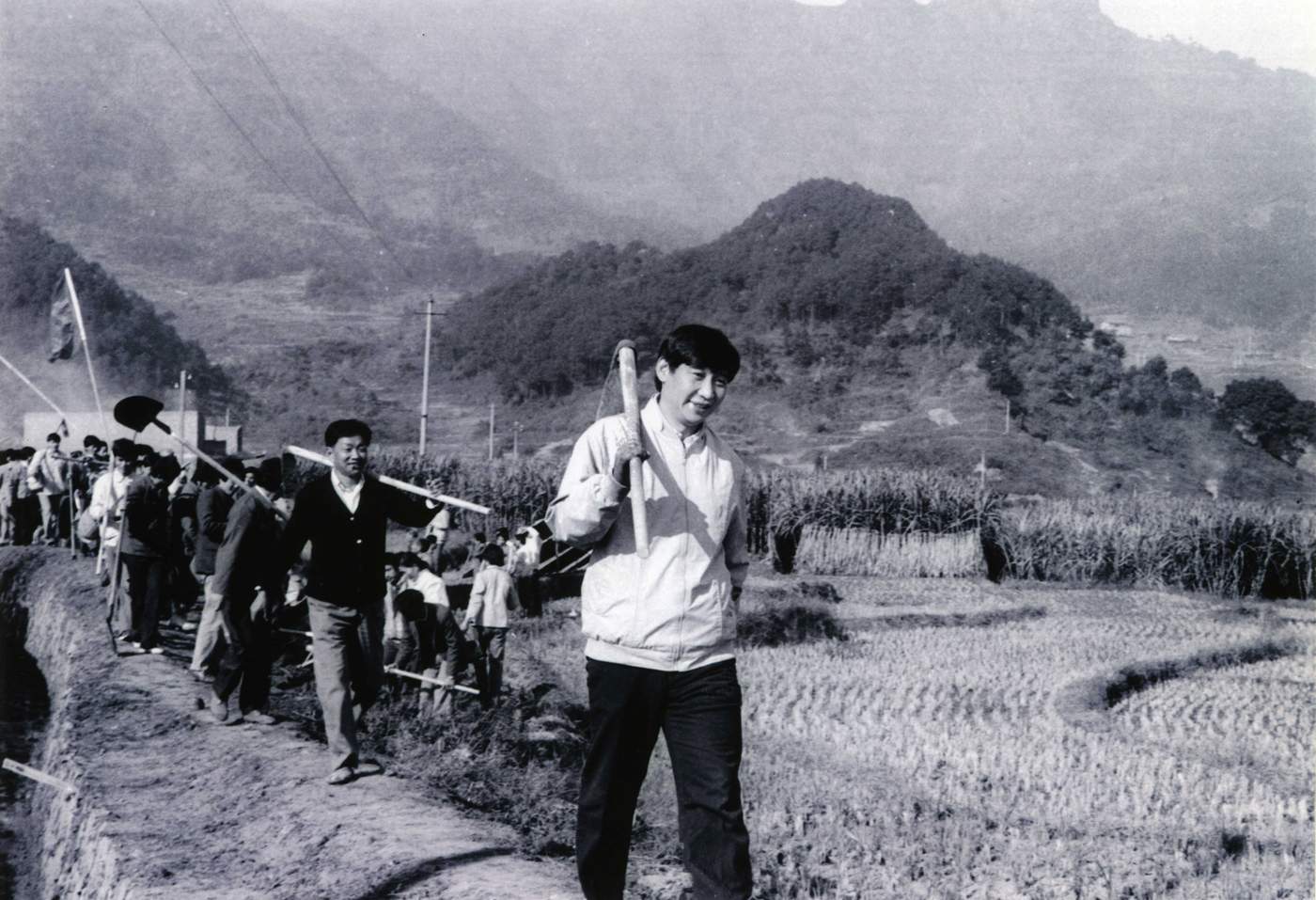
df
Back then everyone studied Chairman Mao’s famous little red book. Now the thoughts of Chairman Xi are posted on huge red hoardings and there is a museum in his honour. It extols the good deeds he did for his fellow villagers but all trace of true personality has been expunged in a story so saintly it is hard to work out what is real.
In his first five years in office, Xi Jinping has built a personality cult. At its core is the image of a man of the people. He has toured back-alley homes, ducking through washing lines. He has talked in earthy prose, telling students that life is like a shirt with buttons where you have to get the first few right or all the rest will be wrong. He has queued in a downmarket steamed-bun shop and paid for his own lunch.
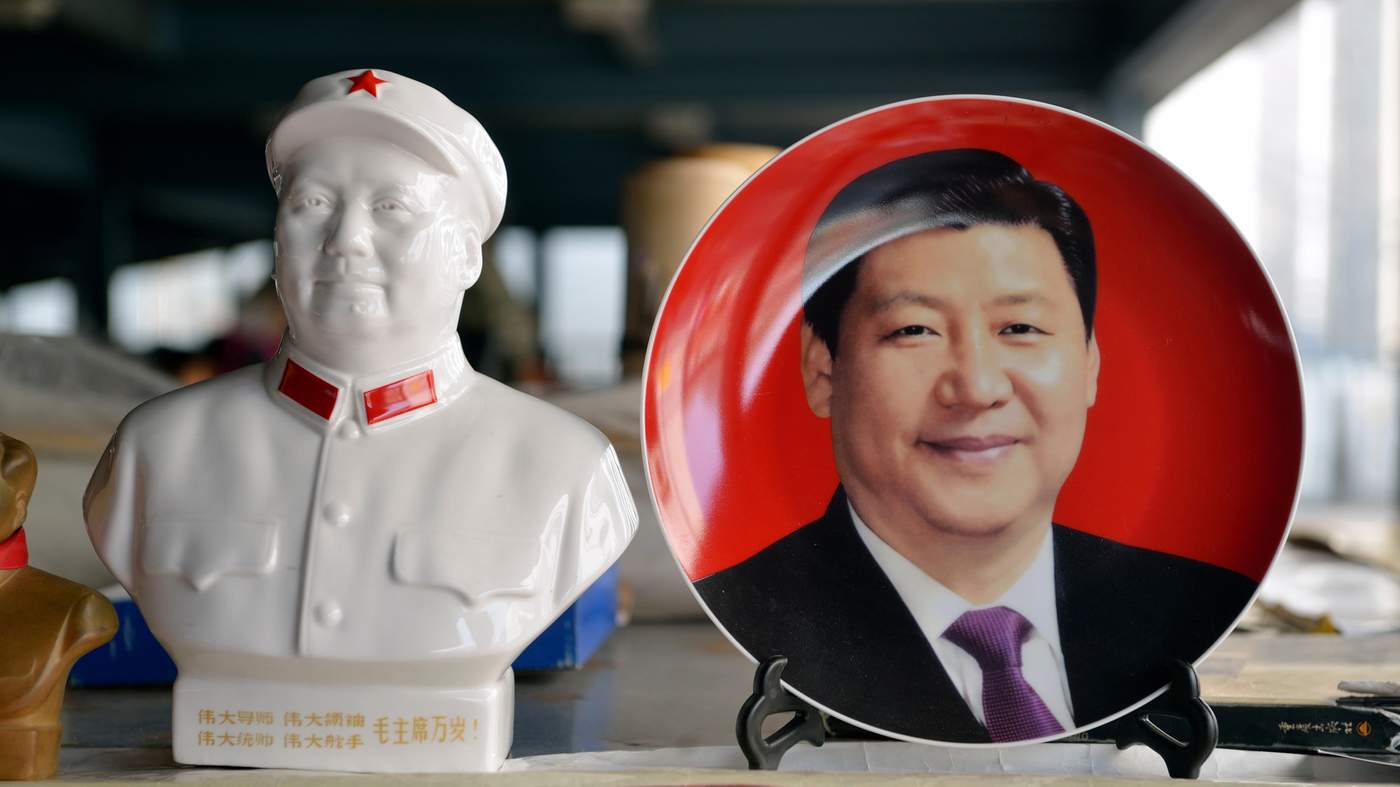
But it is his early exile from home and family, a political outcast in a cave, that is the heart of Xi’s creation myth.
“People who have little experience with power… tend to regard it as mysterious and novel. But I look past the superficial things - the power and the flowers and the glory and the applause. I see the detention houses, the fickleness of human relationships. I understand politics on a deeper level.”
The young Xi had already lived two lives by the time he arrived in the cave. During his early childhood, his father was a hero of the communist revolution and Xi enjoyed a privileged and cloistered upbringing as a “red princeling”.
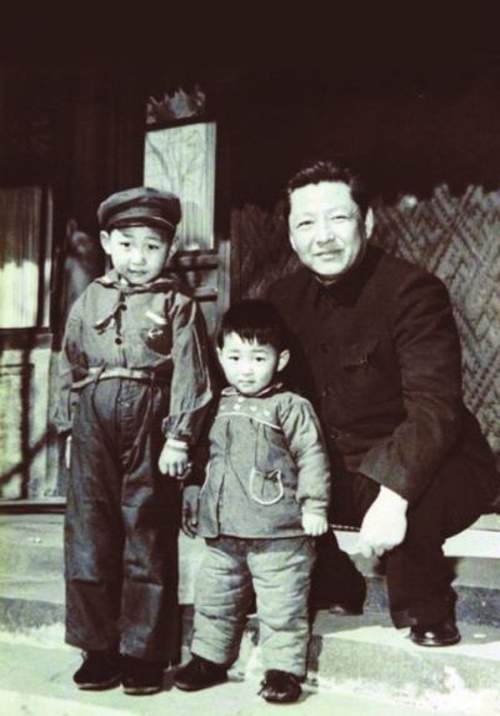
The young Xi Jinping (left) with his younger brother and their father
A 2009 American diplomatic cable released by Wikileaks - and based on a briefing from a close friend of Xi’s - said the first 10 years of his life were the most formative.
“The most permanent influences shaping Xi's worldview were his ‘princeling’ pedigree and time growing up with families of first-generation Communist Party revolutionaries in Beijing's exclusive residential compounds.”
But all of that was shattered in the maelstrom that an increasingly paranoid and vengeful Chairman Mao inflicted on the party elite in the 1960s. Xi’s father was first purged and then jailed, and his family humiliated. One of his sisters died, possibly driven to suicide. By the time he was 13, Xi’s formal schooling ended as classes across Beijing were suspended so that students could criticise, beat and even murder their teachers.
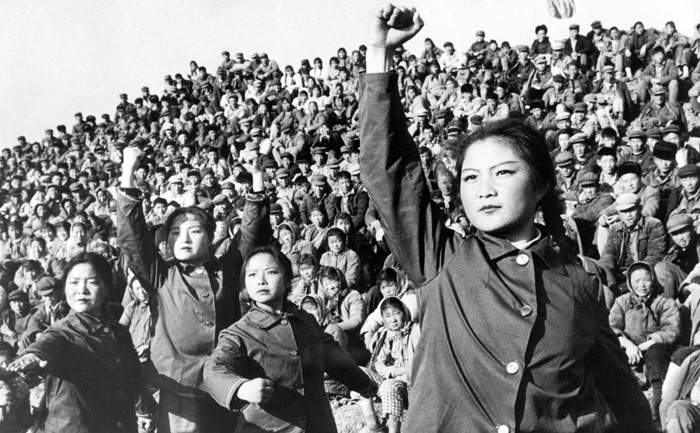
1966: Chinese Red Guards during the Cultural Revolution
Without parents or friends to protect him from the Red Guards dispensing the summary justice of the Cultural Revolution on the streets, the teenage Xi lived his second Beijing life, dodging death threats and detention. Much later, he recalled an encounter in a conversation with a reporter.
“I was only 14. The Red Guards asked, ‘How serious do you yourself think your crimes are?’
“I said, ‘You can estimate it yourselves. Is it enough to execute me?’
“‘We can execute you a hundred times,’ they replied.
“To my mind there was no difference between being executed a hundred times or once.”
Many of Xi’s generation agree that when their schooling stopped and they learned to survive on their wits, they developed emotional toughness and independence of thought. Xi later reflected on his ability to listen to other points of view without necessarily bowing to them.
“I had to learn to enjoy having my errors pointed out to me, but not to be swayed too much by that. Just because so-and-so says something, I’m not going to start weighing every cost and benefit. I’m not going to lose my appetite over it.”
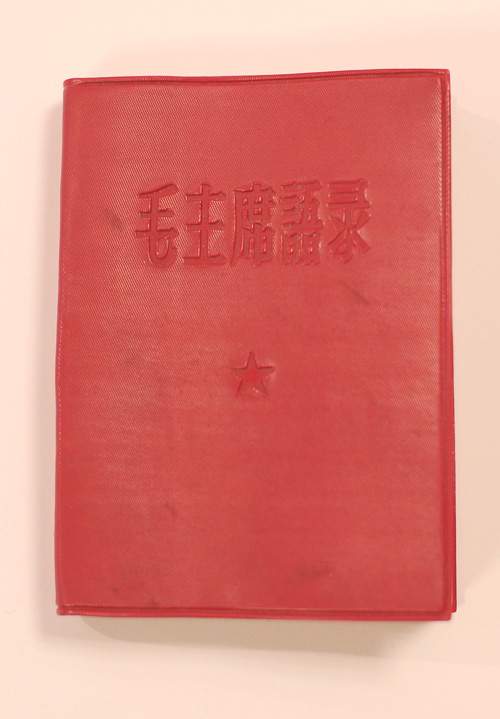
[The young Xi] read the Selected Works of Mao Zedong, famous quotes from Mao, and the newspaper. There wasn’t anything else.”
Village life in 1960s China was tough. There was no electricity, no motorised transport, no mechanical tools. The teenage Xi learned to carry manure, build dams and repair roads.
He shared the flea-ridden brick bed in his cave with three others. One of them was farmer Lü Housheng, who told me in 2015: “All we had to eat at that time was porridge, herbs and steamed buns. If you’re hungry you don’t care what you’re eating.”
At night Xi would retreat to his cave to read by the light of a kerosene lamp. Lü remembers him as a voracious reader and heavy smoker.
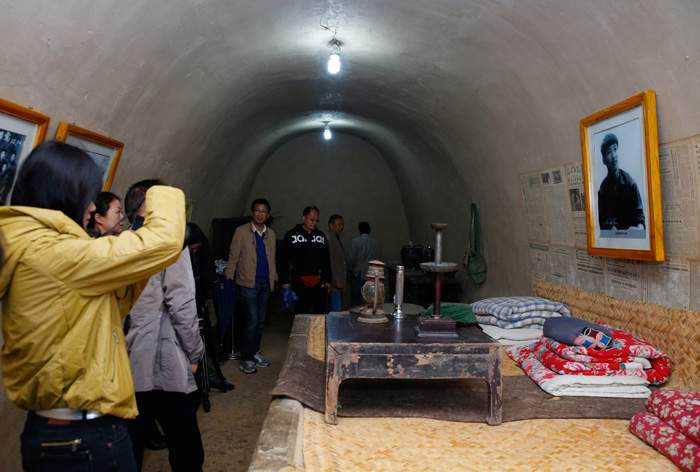
The cave where Xi lived is now a tourist attraction
“While he read I would roll the cigarettes. He read the Selected Works of Mao Zedong, famous quotes from Mao, and the newspaper. There wasn’t anything else.”
Xi had no sense of humour according to Lü. He didn’t play poker, hang out with other young people or look for a girlfriend.
Instead by 18, Xi was ready to embark on his political career. He joined the Communist Youth League, and at 21, despite multiple rejections due to his father’s imprisonment and his family’s disgrace, he finally succeeded in joining the Party itself.
Supremely pragmatic, a realist, with his "eyes on the prize" from early adulthood.
This was how Xi’s friend described him in the 2009 diplomatic cable. Unlike many youths who "made up for lost time by having fun", Xi was exceptionally ambitious and focused. After the Cultural Revolution, he "chose to survive by becoming redder than the red”.
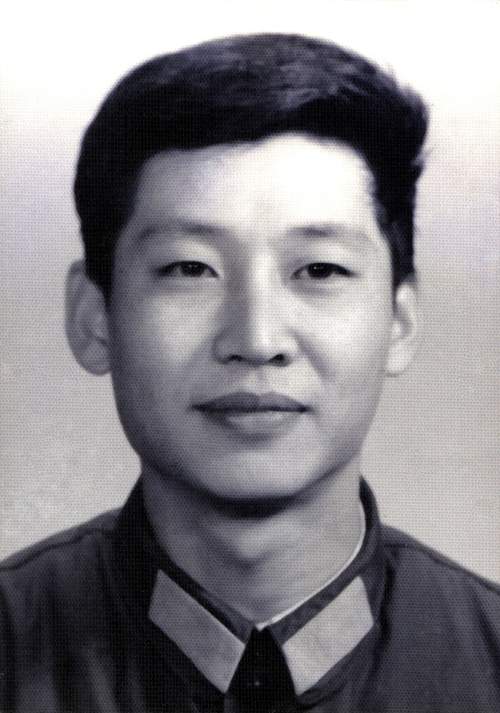
Xi, pictured in 1979
By the time Xi was 25, his father had been politically rehabilitated and sent to run Guangdong, the vast province next door to Hong Kong, which would become the powerhouse of China’s economic rise. The elder Xi advanced his son’s career through his patronage network, and according to his friend, Xi quickly learned to build his own.
“He carefully laid out a career plan that would maximise his opportunities to rise to the top levels of the Party hierarchy, first becoming a PLA [army] officer in the late 1970s and then serving in a variety of provincial leadership positions, progressively rising through the ranks. He had promotion... in mind from day one."
No-one in their right mind would ever think that guy who stayed in my house would become the president. I don’t care what country you’re talking about.”
Xi took the traumas of his early life and the solitude of the cave with him. His friend said his reserve, a certain distant quality, contributed to the failure of his first marriage to the daughter of a senior diplomat.
But it clearly contributed to the success of his political career. Until he reached the very top, his defining achievement was to have risen with barely a trace.
The only time he drew attention to himself was when he married his current wife, a celebrity singer. For many years the public joked: "Who is Xi Jinping? He is Peng Liyuan's husband.”
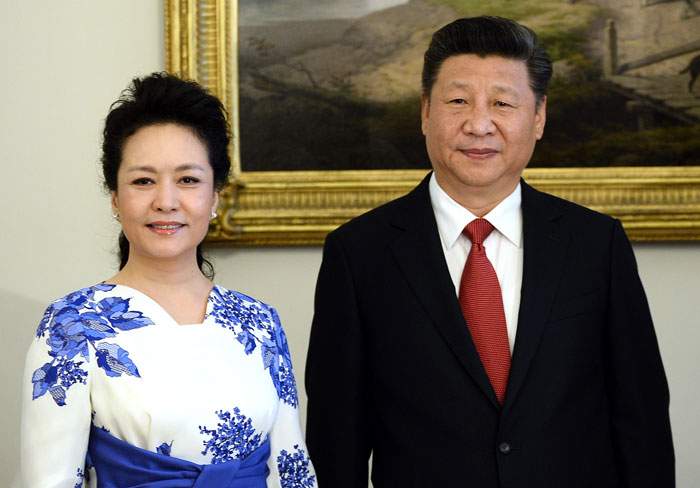
Peng Liyuan with her husband, Xi
One reporter for state media whose task was to cover Xi as a mid-career provincial leader told me he was “always very boring and forgettable. He didn’t want to get any kind of bad record.”
Having watched as his outspoken father was victimised by Mao, Xi deferred to power and was careful to avoid making enemies. Even in his 40s and 50s as a very senior Party leader, he was always competent, never showy.
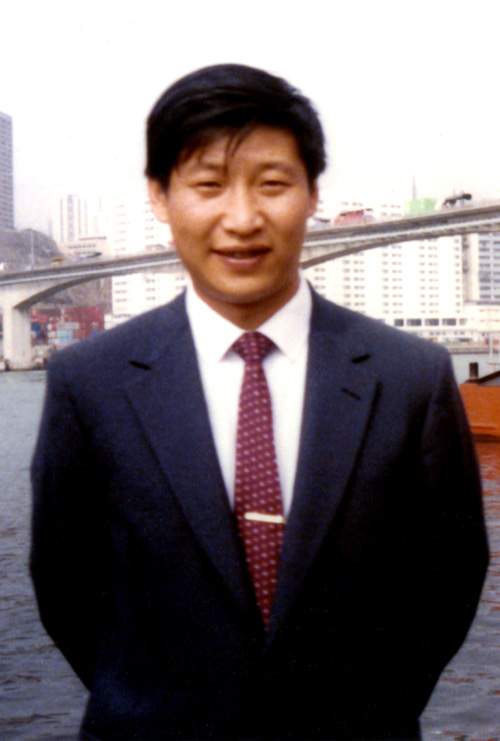
The young Xi: “Boring and forgettable”
One astute insider described him as “a needle concealed in silk floss”.
Eleanor Dvorchak hosted him on an agricultural research trip to Muscatine, Iowa, in 1985. He slept in her son’s room with Star Trek posters on the wall. “He was humble,” when he went back to Iowa in 2012 just before becoming China’s top leader. “No-one in their right mind would ever think that guy who stayed in my house would become the president. I don’t care what country you’re talking about.”
Everyone was taken in. When he became Communist Party leader in 2012, Xi Jinping was the compromise choice.
Few inside or outside China guessed at what was coming next - five years of political shock and awe.
On 11 June 2015, a white-haired old man stood in the dock of a criminal court in northern China, flanked by officers who had once answered to his command.
For years he’d been the most feared man in China, controlling police, paramilitaries, prisons and intelligence operations. But in the year-and-a-half between vanishing from public life and reappearing in court, this 72-year-old had lost his jet black hair and become stooped and haggard.
Now he was the target of the Orwellian security system he himself had built. And he knew better than to resist.
“I accept the sentence. I will not appeal. I realise the crimes I’ve committed and what I’ve cost the Party.”
When Xi Jinping came to power, he had promised the public a campaign which would “brandish the sword against corruption”, caging tigers as well as trapping flies.
Here was one of the biggest tigers of all. Zhou Yongkang was the most senior Party official ever to stand trial for corruption in the history of communist China.
A commentary on state TV news proclaimed: “No-one is above the law. This case shows that our country is practising the rule of law and our Party is determined to eradicate corruption.”
The downfall of another tiger – Bo Xilai – . He and Zhou were accused of plotting together and, with two top military figures and another senior politician, of “wrecking Party unity”.
Zhou’s trial came halfway through Xi’s first term. The campaign of shock and awe was well under way with a barrage of high-profile trials and a drumbeat of righteous propaganda.
To supplement the image of a newly disciplined and frugal political culture, Xi tried to avoid banquets and sometimes travelled in a van with colleagues instead of a fleet of limousines.
Since the communists fought their way to power, they had called themselves the “vanguard of the people”, an elite class whose mandate to rule came from “serving the people”.
Without living by this higher code the Party had no claim to legitimacy. For the past five years, Xi’s blunt message has been: “Don’t join the Party if you want to make money.” But his problem was, and still is, that this is precisely why some of the Party’s nearly 90 million members did join up.
With an envelope of banknotes here, and a nod there, patronage is how Communist Party politics has often worked. Cleaning it up means removing not just individuals but whole networks of influence and a culture.
“He who rules by virtue is like the North Star,” Xi said, quoting the ancient philosopher Confucius. “It maintains its place, and the multitude of stars pay homage.”
He issued edicts on the appropriate number of dishes for lunching public officials and even decreed office measurements for each rank in the hierarchy. Xi returned to his roots in the cave village to rub shoulders with ordinary farmers and make an unspoken point about the contrast between his own life story and a corrupt elite.
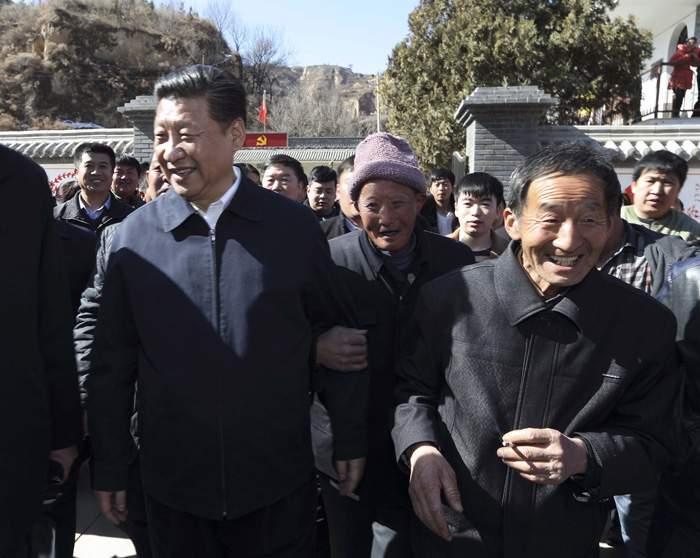
But Xi, now 64, has always belonged to the elite. In the years before he took power, some of his relatives had become enormously wealthy, though there is no evidence that he sought to promote the business interests of his family.
According to his friend’s account, in the American diplomatic cable published by Wikileaks: “Xi knows how very corrupt China is and is repulsed by the all-encompassing commercialisation of Chinese society, with its attendant nouveau riche, official corruption, loss of values, dignity, and self-respect, and such ‘moral evils’ as drugs and prostitution.”
Zhou Yongkang had been a Party member for half a century. Where Xi started life as one of the cloistered red elite in Beijing, Zhou’s family were hard-pressed beet farmers who fished for eels to supplement their income. Their eldest son had brought the family honour by going to university and becoming an oil engineer.
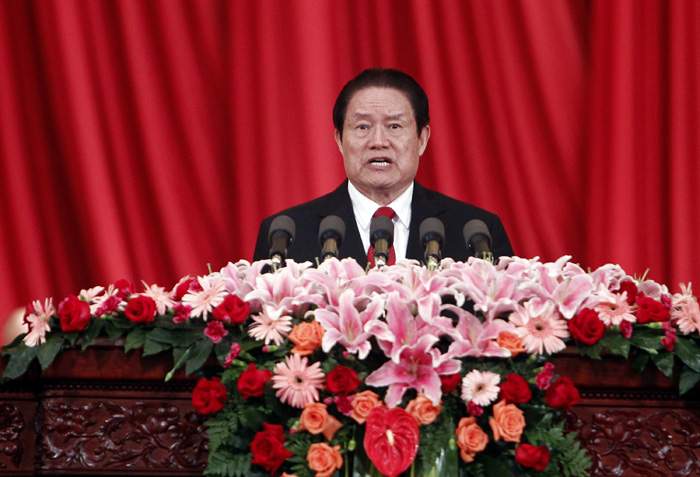
Zhou Yongkang, before his fall
He’d risen to run China’s biggest oil company and then a province of 80 million people. He’d crowned his career with a seat at the Party’s top table and control of the security system. Together it made for a formidable patronage network.
By the time Zhou appeared in court, Xi had painstakingly torn that network apart - his investigators interrogating everyone from office staff to drivers and cooks.
Only months before Zhou’s court appearance, one of his business cronies had been executed for running a mafia which resorted to intimidation and murder. But the Party rarely executes its own. Zhou was sentenced to life in prison.
In his home village of Xiqiantou many share the surname Zhou. Set amid lush fields and fruit trees, Xiqiantou presents a tranquil scene of whitewashed houses with curved eaves and ducks dabbling on the village pond.
On the day I visited, one angler hooking bait in the afternoon sun complained: “It’s winner-takes-all in politics here. Zhou Yongkang worked his way up the hard way. He’s made a big contribution to the Party. Xi Jinping’s just pinning these allegations on him.”
Winner-takes-all is a dangerous game. Zhou was not just corrupt - he belonged to a rival Party faction whose power challenged Xi’s own. Everyone now sees that in the Xi era, if you lose, you lose everything.
A fractured elite is a threat to an authoritarian regime and in pre-communist times, China’s imperial dynasties often fell victim to faction fights at court. By caging hundreds of powerful tigers at the top of the Party and army, Xi has torn up the rulebook which kept a fragile peace between the red elite after the death of Chairman Mao. Any of them might be making a speech in the Great Hall of the People one minute and dragged off to a cell the next.
No wonder China is alert to sudden disappearances. In January 2017 a 45-year-old billionaire with connections to many top families vanished from his luxury Hong Kong apartment, accompanied by several unidentified men.
Xiao Jianhua has not been seen since but is believed to be in custody in mainland China - a warning to others that money, connections and a Canadian passport are not enough to protect you from the long arm of Xi.
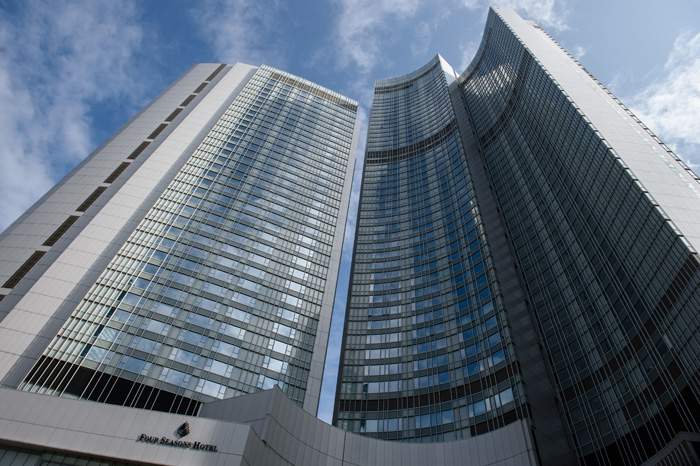
Xiao Jianhua disappeared from the Four Seasons Hotel in Hong Kong
Six months later came the purge of a politician the billionaire knew well, a man many had tipped to rise to the very top leadership in the coming Congress reshuffle. Bribes, abuse of power, exchange of money for sex, leaking Party secrets - the charge sheet against Sun Zhengcai was familiar. But five years into Xi’s rule, it reinforces the impression that the Party’s corruption problem is systemic and enduring.
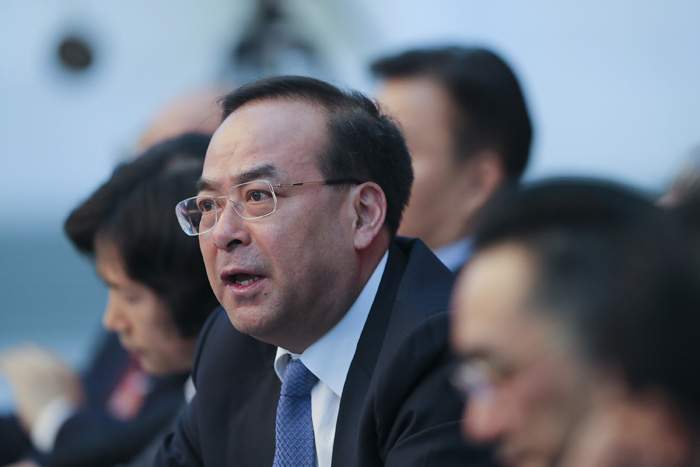
Former politburo member Sun Zhengcai was expelled from the Communist Party
On the other side of the world another well-connected billionaire had already said exactly that.
In recent months, from the safety of a Manhattan penthouse, Guo Wengui has made regular YouTube broadcasts alleging that the anti-corruption chief Wang Qishan – effectively Xi’s right-hand man - is himself corrupt. The only person Guo has been careful not to target is Xi himself.
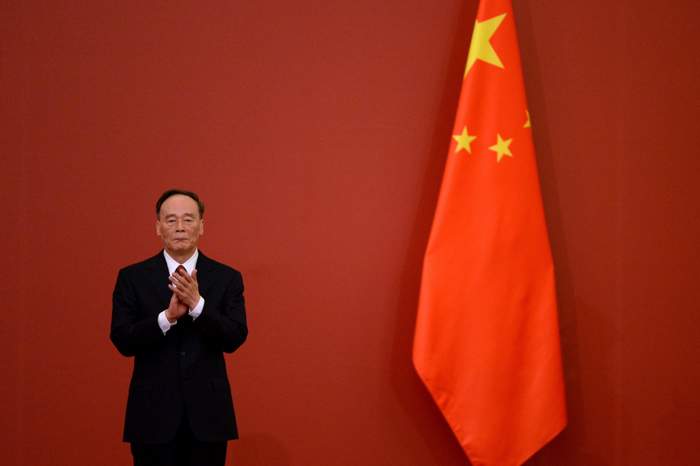
Xi's anti-corruption chief, Wang Qishan
Beijing has denied his allegations and Guo himself is now the target of multiple lawsuits. But many Chinese are gripped by his sensational account of the links between politics and business.
Some of his allegations seem far-fetched, but the picture he paints is one of pervasive moral bankruptcy. In the absence of transparency, it has tarnished Xi’s narrative of a Party which has rediscovered its moral compass.
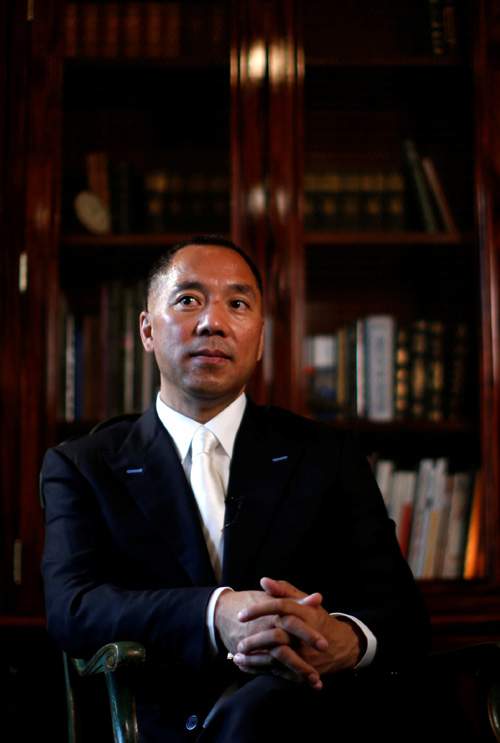
Guo Wengui, photographed in New York
All the senior corruption investigations of the past five years have been conducted in secret. The Chinese Communist Party remains an opaque organisation, and while pledging to clean up wrongdoing, Xi has shown no inclination to allow the whole truth to emerge in court or any other public domain.
Again and again, the Party has discovered that power corrupts and absolute power corrupts absolutely. But Xi is determined that he alone will command the clean-up of comrades and the caging of tigers.
The trouble started when wags on Chinese social media spotted a similarity between a photo of Xi Jinping strolling with Barack Obama and a classic image of Winnie the Pooh and Tigger.
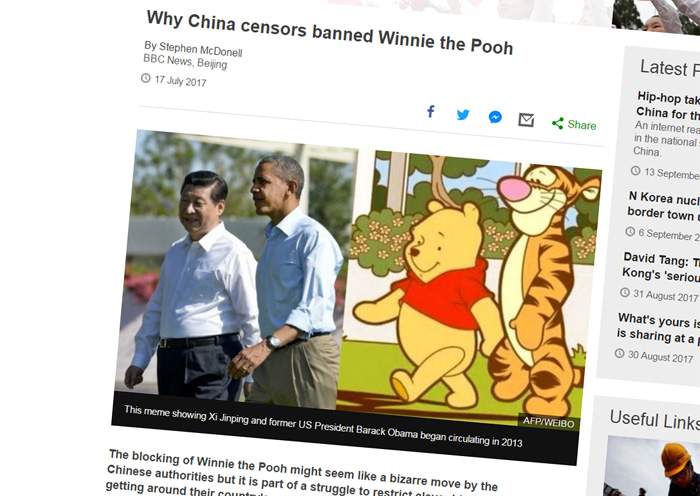
From then on, China’s internet censors have waged war on the bear. There was the meme of Pooh gripping the hoof of his friend Eeyore alongside a photo of Xi grimly shaking hands with the Japanese prime minister. Then a picture of Winnie the Pooh in a toy truck appeared online just after Xi had inspected troops from an open-top car.
Former US President Bill Clinton once joked that China’s bid to censor the internet was like “nailing Jell-o to the wall”.
But for Xi as for the Communist Party, ridicule feels dangerous. In April this year there was no sense of humour when a man was sentenced to two years in jail for “picking quarrels and stirring up trouble” after an online reference to Steamed Bun Xi, a popular epithet for the Chinese leader after his famous lunch in the steamed-bun restaurant.
“The internet has grown into an ideological battlefield, and whoever controls the tool will win the war,” warn Party-controlled media.
China has more than 750 million internet users, more than the US and Europe combined. Xi is keen that China should be a cyber-superpower when it comes to innovation and commerce, but not at the expense of political discipline.
Xi has waged two wars at home, one for control of his Party comrades and the other for control of the internet.
In a recent speech he warned that the internet must not become a “double-edged sword”, allowing “hidden negative energy” to harm good governance and social stability.
He has enormously strengthened the so-called Great Firewall of China, the combination of legislation and technologies, supported by legions of professional and volunteer censors, which together enable the Party to control Chinese cyberspace.
Cybersecurity is now central to Xi’s definition of national security. Internet service providers and social media sites are forced to censor users, while users are encouraged to censor each other. All are denied online anonymity and those who overstep red lines are jailed.

It is reminiscent of the Mao era, when the Party expected citizens to spy on each other, and kept detailed files on them to instil fear.
But Xi’s surveillance network may already be more powerful. China has no meaningful privacy protection and every mobile phone is now a potential listening device and censorship tool.
China’s leaders have always prioritised the control of sensitive information. But until Xi, the underlying assumption of many communists during the reform era was that a complex and dynamic modern economy would need decentralised decision making and that this would ultimately mean more internet freedoms.
Xi has a different vision - of a China, rich, united and strong under a disciplined one-party narrative. Wherever ideas are formed and transmitted, he has worked to recapture control.
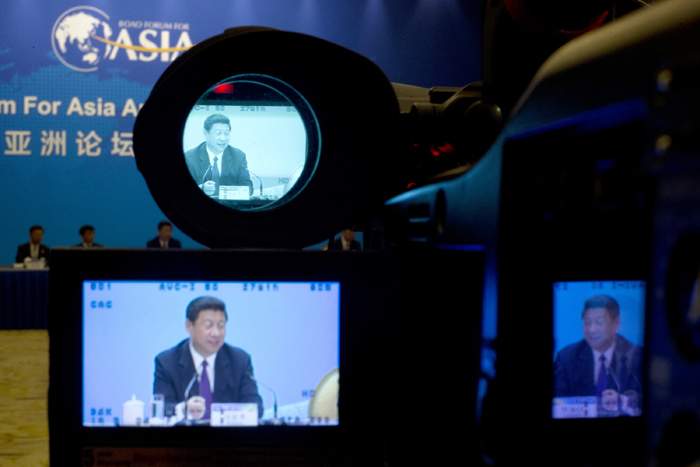
When he toured the Beijing headquarters of state TV, a giant screen behind him flashed the message “absolute loyalty” and "our surname is the Party".
On university campuses, Party leadership is being “enhanced” and academic textbooks scoured of Western influence. Private companies are eagerly announcing internal Communist Party cells, with even Shanghai’s Disney Resort enthusing that “some really good ideas come from the Party committee”.
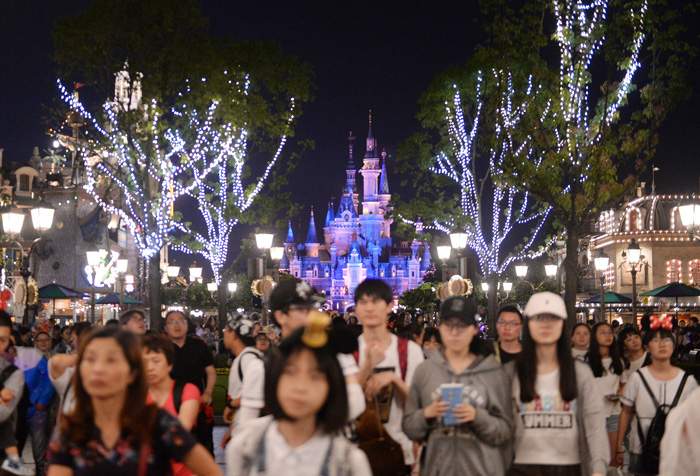
Cyberspace has seen an even fiercer clampdown. Xi took office in 2012, a year after the internet had played a key role in sparking the Arab Spring. He resolved it would never be allowed to spread protest in China, fearing a repeat of 1989, when the Party sent troops into Tiananmen Square to crush a student democracy movement.
Even when travelling abroad, many Chinese citizens now remain behind the Great Firewall as their service providers enforce Party censorship.
Until now the firewall has had small cracks, with those determined to access alternative sources of information able to do so via a virtual private network (VPN), a tunnelling device to the world beyond the reach of China’s censors.

There on Western social media they can find a very different perspective on China.
In his second term, Xi intends to take full control of the VPN tools that allow “negative energy” to evade his censors.
Relying on mobile phone data and facial recognition, all enhanced by a massive investment in artificial intelligence and big data management, Xi hopes to command an internal security system unimaginable to his revolutionary or imperial forebears.
His fight for control of China’s story does not stop at the country’s borders. Just a fortnight before the sensitive 19th Communist Party Congress in Beijing, a think tank on the other side of the world was targeted in a cyber-attack which appeared to originate from Shanghai. And weeks earlier, a law firm had suffered a similar attack.
What connected the two was Guo Wengui, the flamboyant tycoon behind the YouTube diatribes against what he says is the greed, scheming and savagery of some of his former cronies.
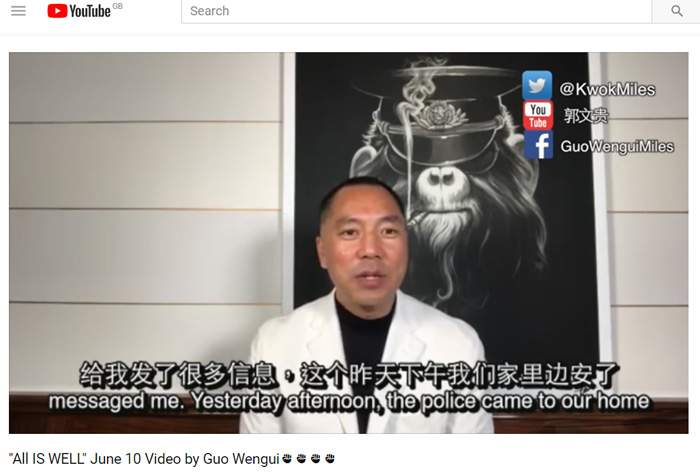
Guo Wengui broadcasting on YouTube
The law firm targeted, Clark Hill, had filed Guo’s asylum claim in the US. And the think tank that was hit, the Hudson Institute, was due to host Guo’s first public speaking engagement in the US. The event was cancelled, and the institute acknowledged that it had faced pressure from the Chinese embassy. But it said the problem was logistics not politics.
“The notion that we would be intimidated by the Chinese government is plain wrong.”
However, many are intimidated. In 2014 the then-Australian Prime Minister Tony Abbott told the visiting Xi Jinping it was a “joy to have friends come from afar”. But the day before he had privately told the German Chancellor Angela Merkel that Australia’s China policy was driven by “fear and greed”.
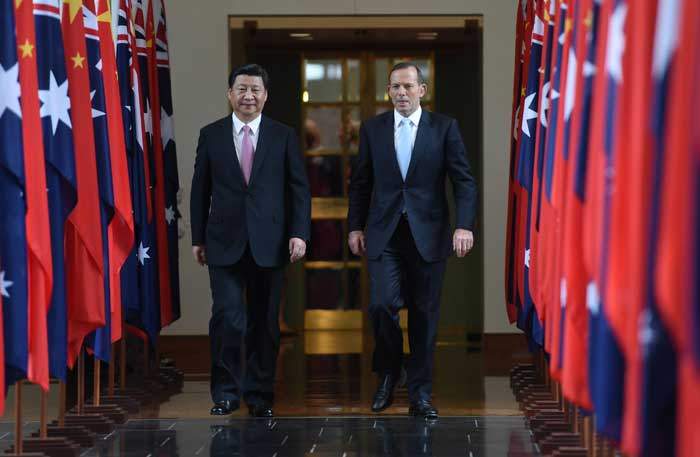
Xi with former Australian Prime Minister Tony Abbott
Both fear and greed are powerful motivators in the context of a rising China, and Xi has been bold in exploiting them, globalising a control strategy of carrots and sticks that works well at home.
“Tell China’s story well,” he urges people with Chinese roots, wherever they are in the world. He insists that they should “identify with China’s interests” whether or not they are Chinese nationals.
Beijing’s embassies encourage the growing Chinese student bodies on campuses in the West to silence competing narratives.
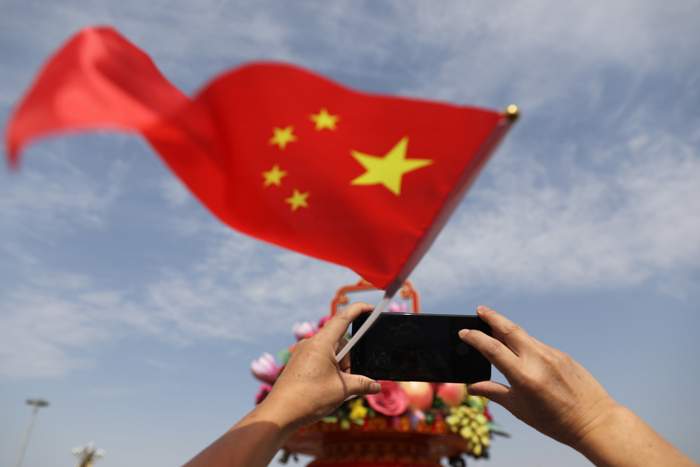
And money talks. When Xi visited Seattle in 2015, America’s technology giants allowed themselves to be summoned.
The bosses of Apple, Microsoft, Cisco, IBM and Amazon all stood alongside Xi in the front row of a group photograph. All have since embarked on multiple partnerships with China despite its commitment to perfecting internet censorship.
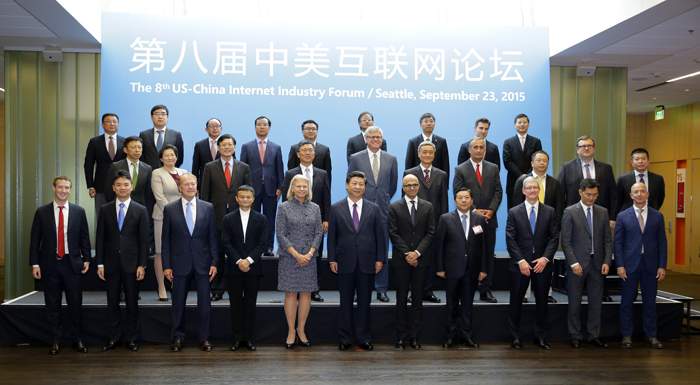
2015: Xi in Seattle with tech company leaders, including Mark Zuckerberg (Facebook), Tim Cook (Apple) and Jeff Bezos (Amazon)
Also prominent in that photo was Mark Zuckerberg, but despite a charm offensive which included inviting the Chinese Communist leader to suggest a name for his baby, and praising Xi’s book on governance, Facebook is still barred from China. Google’s founders were not even invited to be in Xi’s photo.
Xi has ambitious plans for control of the internet and that means leverage over foreign companies.
Facebook’s messaging tool Whatsapp is increasingly blocked in China and Apple has now removed from its China App Store the VPNs which once gave Chinese users access to social media tools in the West, including the YouTube channel which gave the gleeful Guo Wengui such a devastating platform to discredit Xi’s rule.
To fully control China’s cyberspace, Xi has had to take action against the world’s.
“Tell China’s story well,” he urges people with Chinese roots, wherever they are in the world. He insists that they should “identify with China’s interests” whether or not they are Chinese nationals.
Beijing’s embassies encourage the growing Chinese student bodies on campuses in the West to silence competing narratives.
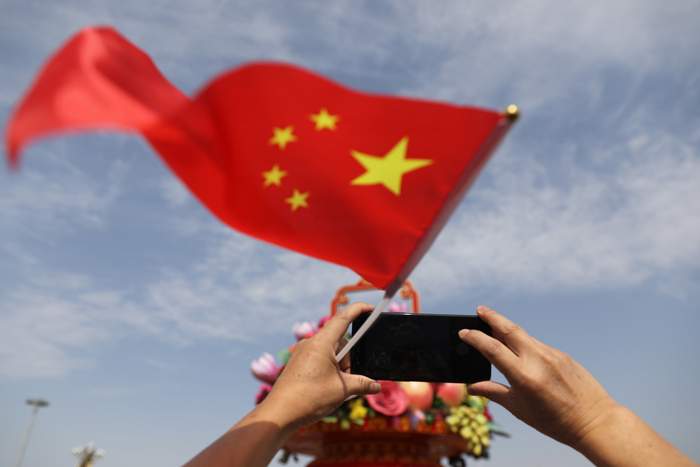
And money talks. When Xi visited Seattle in 2015, America’s technology giants allowed themselves to be summoned.
The bosses of Apple, Microsoft, Cisco, IBM and Amazon all stood alongside Xi in the front row of a group photograph. All have since embarked on multiple partnerships with China despite its commitment to perfecting internet censorship.
Also prominent in that photo was Mark Zuckerberg, but despite a charm offensive which included inviting the Chinese Communist leader to suggest a name for his baby, and praising Xi’s book on governance, Facebook is still barred from China. Google’s founders were not even invited to be in Xi’s photo.
Xi has ambitious plans for control of the internet and that means leverage over foreign companies.
Facebook’s messaging tool Whatsapp is increasingly blocked in China and Apple has now removed from its China App Store the VPNs which once gave Chinese users access to social media tools in the West, including the YouTube channel which gave the gleeful Guo Wengui such a devastating platform to discredit Xi’s rule.
To fully control China’s cyberspace, Xi has had to take action against the world’s.
His sentence was passed on 26 January 2014. Only a few weeks earlier the Communist Party leader had made the short journey from the high-walled elite compound in central Beijing to the mausoleum of Chairman Mao in Tiananmen Square.
There he joined other senior Party figures in bowing three times before the glass sarcophagus in which Mao’s body lay, a mark of respect on the 120th anniversary of his birth.
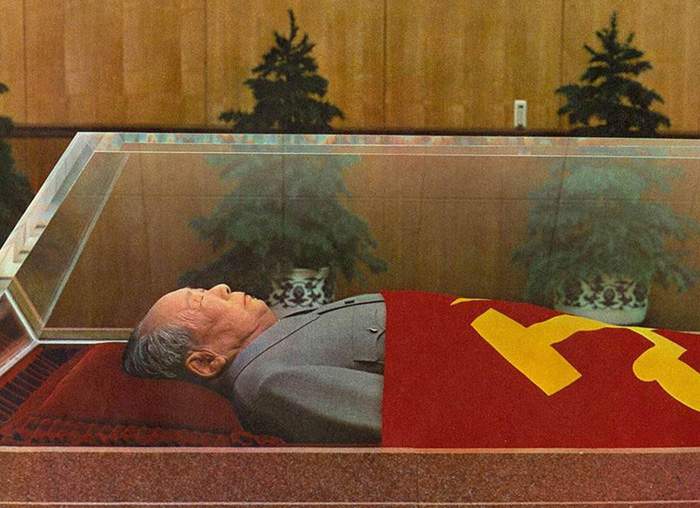
Mao's embalmed body on display in his mausoleum
It apparently doesn’t matter that Mao’s policies led to famine and the deaths of more than 30 million Chinese, or that Xi’s own family had been persecuted in the lost decade of the Cultural Revolution. Under Xi Jinping, dwelling on inconvenient facts of history or insulting revolutionary heroes and martyrs is now a punishable offence called “historical nihilism”.
Mao’s mausoleum is in Tiananmen Square opposite the outer gate of the Forbidden City from which he had celebrated victory in the Communist revolution of 1949, declaring: “The Chinese people have stood up.” His portrait still gazes down on the square. And as the son of one of Mao’s revolutionary comrades, Xi places himself in a direct line of succession.
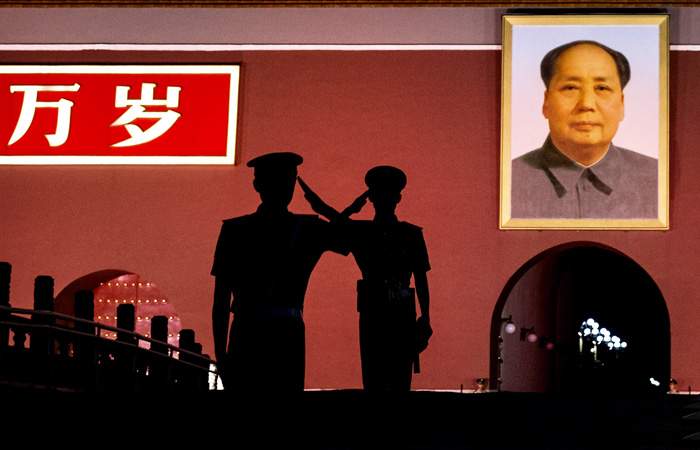
He has promised the public that China will be rich and strong. He believes unity and discipline under one-party rule are crucial in achieving that.
Xi’s elite early education, followed by the terrors of the Cultural Revolution, taught him to fear a politicised citizenry.
Another formative chapter for Xi came with the collapse of communism in the Soviet bloc. His assessment was that Moscow had lost its sense of purpose when it renounced its revolutionary history.
In a speech to his own Party comrades shortly after taking office, he warned: “Proportionally, the Soviet Communist Party had more members than we do, but nobody was man enough to stand up and resist.”
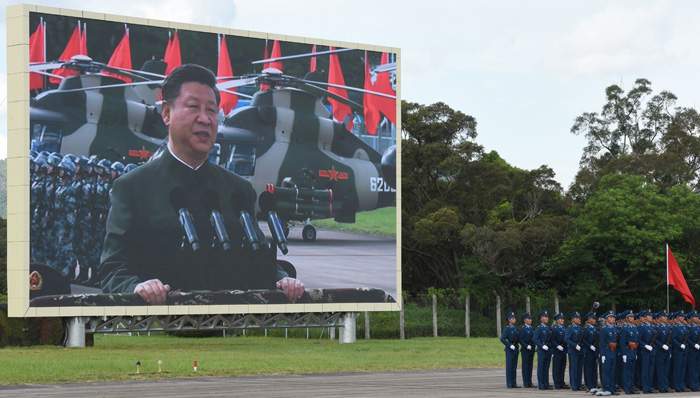
Xi’s resistance to the seductive power of liberal values has been ferocious. He has reached back beyond Marxism to China’s deepest sense of self, quoting an 11th Century Chinese statesman Su Shi: "The most dangerous situation for a country is when apparently everything seems fine, but hidden danger lurks. If one only sits back to watch, the situation will worsen to the point of no return.”
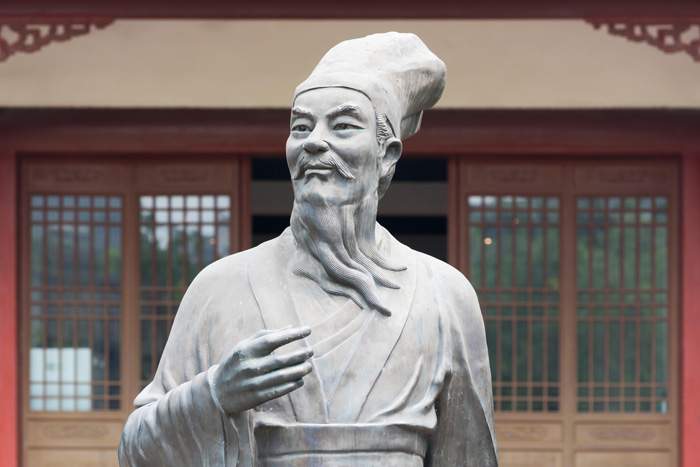
11th Century Chinese philosopher Su Shi
“If our people cannot uphold the moral values that have been formed and developed on our own soil, and instead indiscriminately and blindly parrot Western moral values, then it will be necessary to genuinely question whether we will lose our independent ethos as a country and a people,” said Xi.
A nation of active citizens is Xi’s nightmare. Christians, Muslims, labour activists, bloggers, reporters, feminists, and lawyers have been jailed for speaking or acting on their convictions. In some cases, they have also been paraded in televised confessions, recanting their beliefs and echoing the Party line that they allowed themselves to become pawns of China’s enemies in the West. Rebranding some expressions of conscience as a threat to national security is central to Xi’s politics.
Just as Xu Zhiyong, the champion of citizens’ rights, was about to be arrested, the Party circulated an internal document which became known as the “seven don’t speaks”, outlawing discussion of universal values, press freedom, civil rights and independent courts.
“Shoes don’t have to be identical but just to fit the wearer,” Xi told one audience.
“The gene of traditional Chinese culture is deeply planted in the mentality of modern Chinese.”
He wants his citizens to identify with “the motherland, the Chinese nation or race, Chinese culture, and the Chinese socialist road”. He calls these the “four identifications” and has distilled them into two key slogans - the great rejuvenation of the Chinese nation and the Chinese dream.
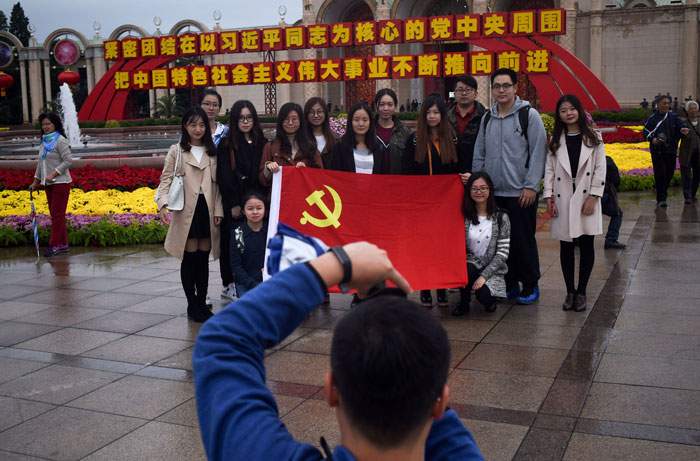
From banners hung above roads and stations, to TV documentaries, online animations and mobile apps, these slogans are everywhere.
For centuries China’s emperors strived to balance the principles of hard and soft power - they called it force and virtue - exercising absolute authority over subjects, while acknowledging a duty of care.
In celebrating China’s communist history, Xi has been careful to balance reverence for Chairman Mao with equal deference to the economic reformer who succeeded him, Deng Xiaoping. Xi talks about Marxism and he talks about markets. But the essence of his “Chinese dream” slogan is clear - “the dream of a strong nation”.
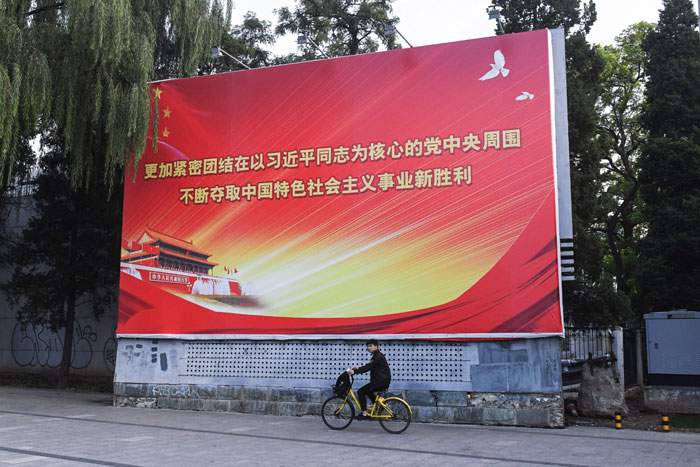
A Beijing billboard advertises the 2017 Communist Party Congress
Different dreams - like Xu Zhiyong’s vision of shared civic identity - are dangerous.
The activist was released in July after completing his four-year sentence. He has not been contactable since.
“It is not possible to pretend that this is just another big player. This is the biggest player in the history of the world.”
So said the late Singaporean leader Lee Kuan Yew of China’s rise.
On becoming leader in 2012, Xi set China’s eyes on the prize.
By the 100th anniversary of the founding of the Communist Party - 2021 - China would become “moderately prosperous”. By the 100th anniversary of the communists coming to power - 2049 - it would be a “fully developed, rich, and powerful” nation.
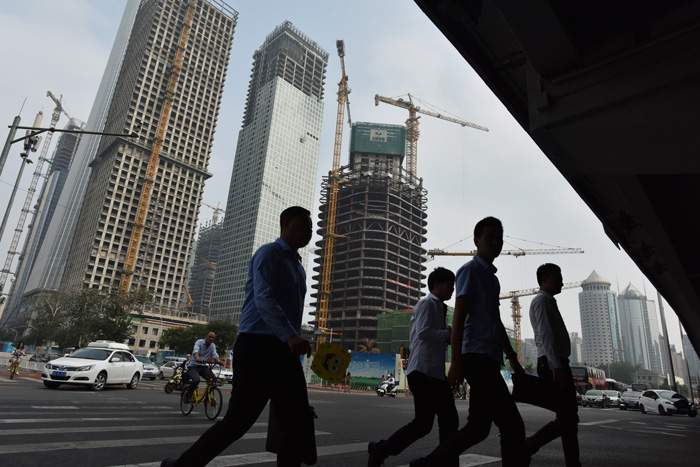
China is on course to become the world's dominant economy
China’s economy may soon be 40% larger than that of the US, measured in “purchasing power parity”. By 2049, it may be three times as large.
The past four decades have been an extraordinary journey not just for China but for the man who leads it. Xi was still a teenage cave-dweller reading by the light of a kerosene lamp when a US president met Chairman Mao in 1972.
Richard Nixon had argued: “Taking the long view, we simply cannot afford to leave China forever outside the family of nations, there to nurture its fantasies, cherish its hates and threaten its neighbours.”
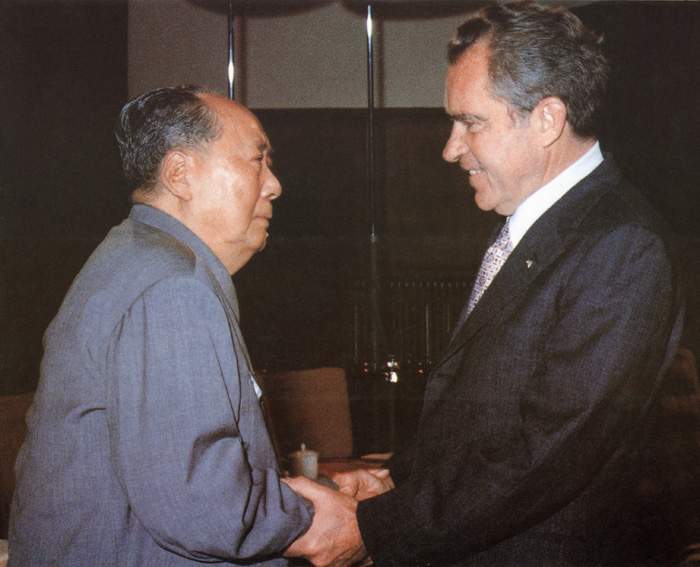
Mao meets US President Richard Nixon in 1972
When the door to the West inched open a decade later, some princelings of Xi’s generation took the opportunity to leave.
But Xi had already set a different course, and according to the account by his friend in the Wikileaks cable, he knew he would “not be special” outside.
Xi is self-assured in encounters with foreigners. He once observed of those who lecture China on human rights: "There are some bored foreigners, with full stomachs, who have nothing better to do than point fingers at us.
“First, China doesn't export revolution; second, China doesn't export hunger and poverty; third, China doesn't come and cause you headaches. What more is there to be said?”
The China Xi inherited was ready for a more assertive vision of itself and he has provided it.
From in the contested South China Sea to new multilateral banks and the infrastructure blueprint of the , he has cast off the old maxim that China should hide its strength and bide its time.
Xi has also nimbly exploited President Donald Trump’s withdrawal from a major trade agreement and the Paris climate accord to present himself as the statesman of the hour and increase China’s influence in the world.
A “whirlwind of charisma” is how a recent TV documentary series described his foreign policy, and to mark his first five years in power, a parallel series charted his campaign against corruption.
But if Xi is to achieve his centennial goals, the real challenge still lies ahead. Surface strength hides deep economic problems. Overall growth is slowing and debt mounting. Many economists warn that time is running out for the reforms which might fix China’s problems without a crisis. And behind the firewall’s façade of ideological unity are many competing ideas about China’s future.
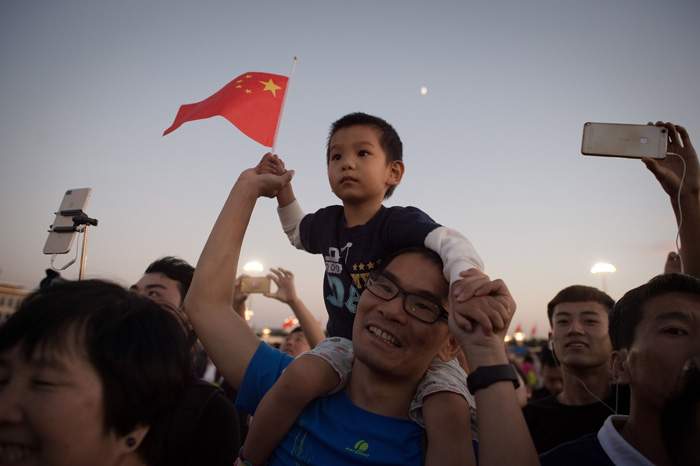
But the Party has survived many crises in Xi’s lifetime, from Mao’s great famine, to the Cultural Revolution, and the crushing of the 1989 democracy movement. He once said: “A sword is made on a grinding stone and a man is forged in hardship.”
Xi’s China has so far married great wealth with great repression. If he continues to cage his tigers, clean up his comrades and silence discordant voices, the existential questions may be for others.
Not since Chairman Mao has China’s dream of greatness rested so heavily on one man.
